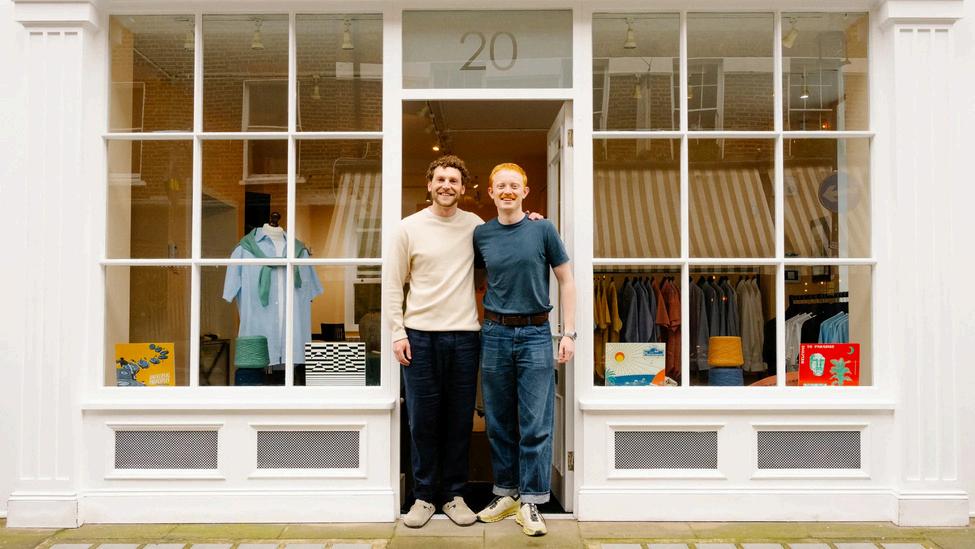
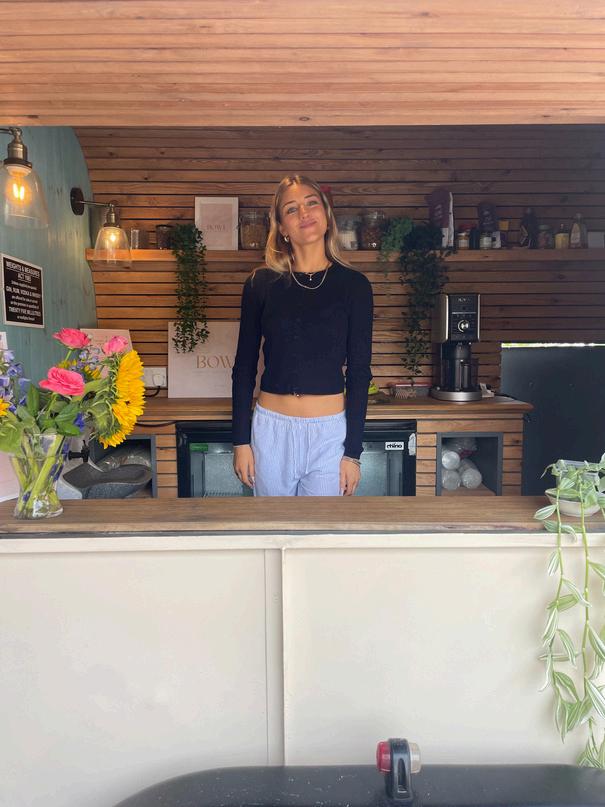

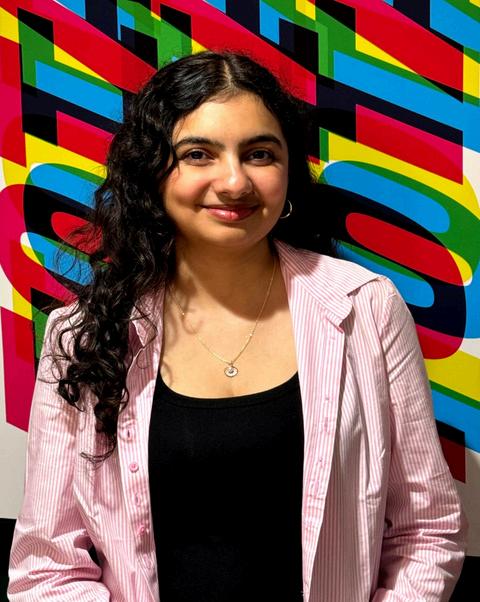










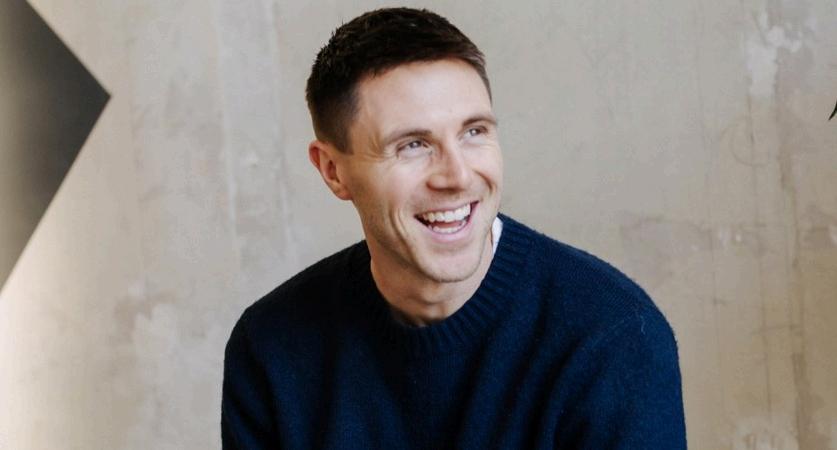
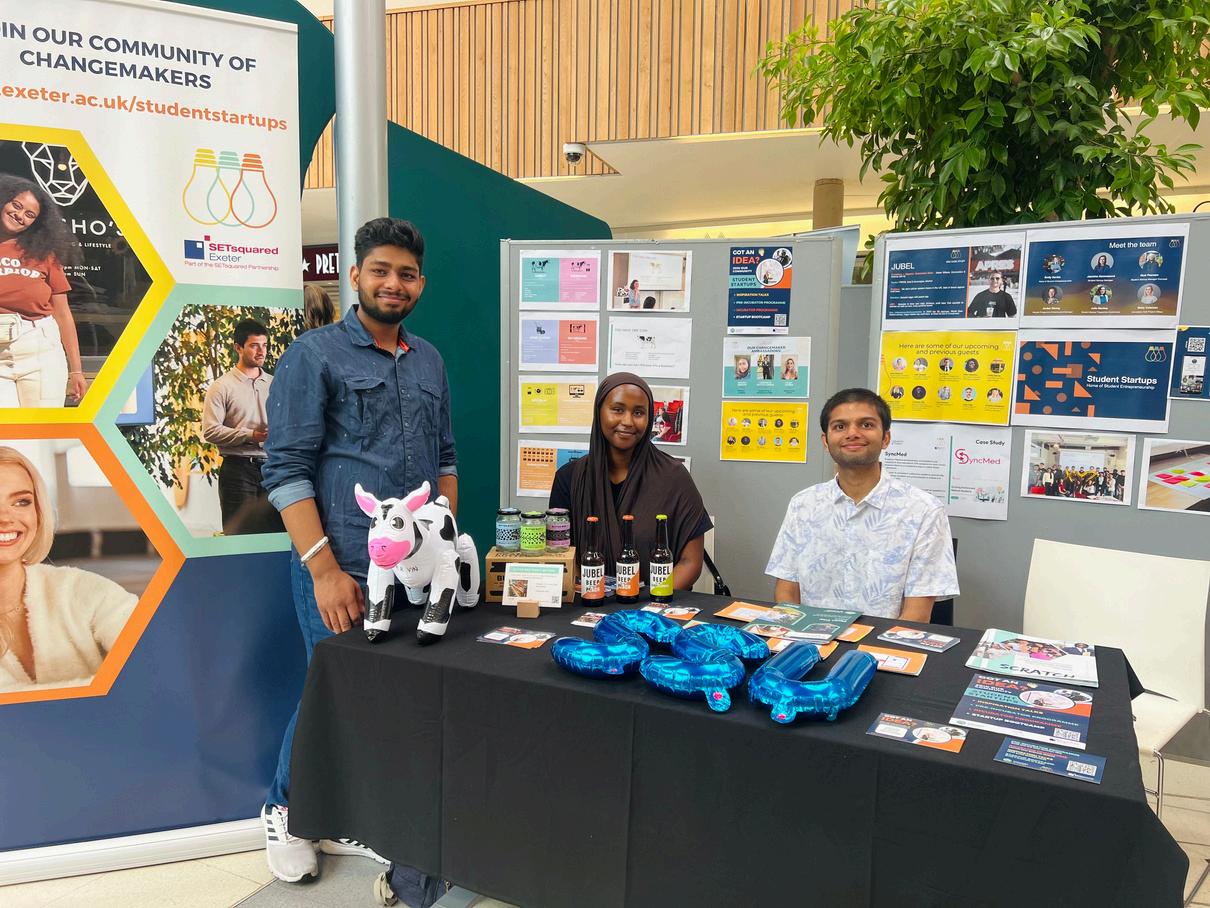
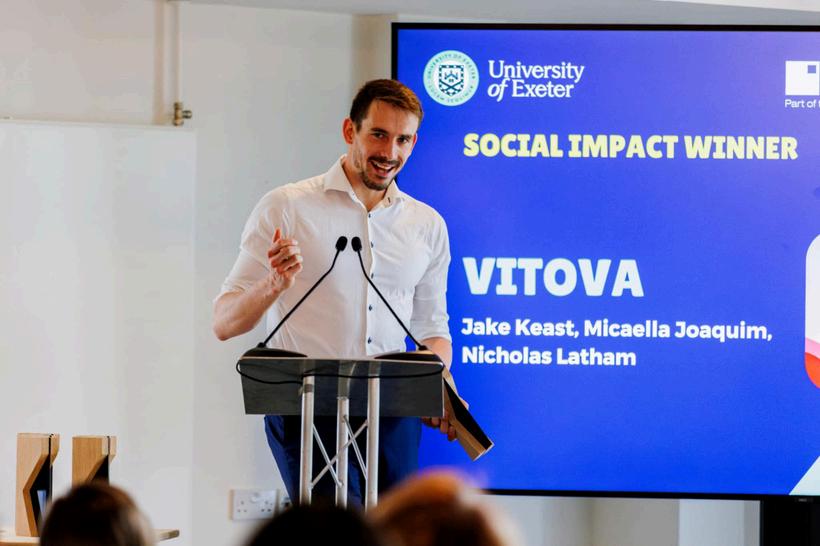


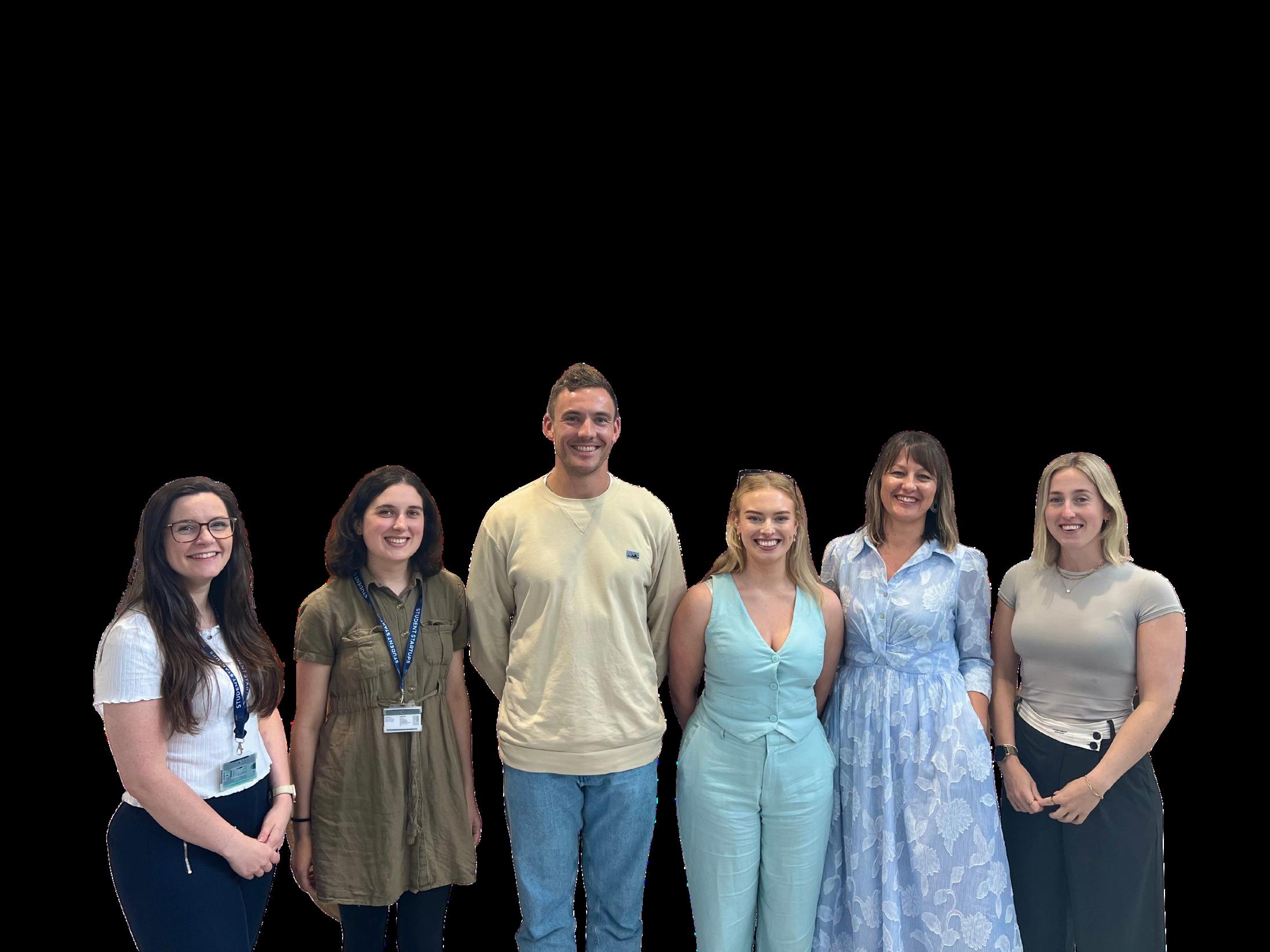
Welcome to the seventh edition of the Student Startups SCRATCH magazine! Published annually, SCRATCH shines a light on some of the amazing entrepreneurial activities within our student and graduate community
Last year, we accepted 269 participants into our incubation programs, welcomed 19 guest speakers, 36 pitch panellists, and awarded over £31,000 in grants In 2024, Exeter Graduate startups achieved a combined turnover of £45.4 million, and continue to make remarkable impact economically, environmentally and socially
This edition features student and graduate entrepreneurs who are building ventures to make the world greener, healthier and fairer We catch up with Chris Rea, cofounder of Y1 Sport, which generated £4 million in revenue last y ear, and supplied equipment for the 2024 Paris Olympics We find out more about the Exeter Innovation Accelerator - a 12-month programme of support designed to guide founders through the early-stages of venture growth, from market validation through to seed investment We find out about the inspiration behind Tomiwa Adeoye’s sell-out AfroExe events, get top tips on building your network from RED-Scue Founder Florence Sargent, and find out why Adam O’Neill is “obsessed with building things that help people”.
Thank you to our community for supporting entrepreneurship and innovation We hope you enjoy this edition as much as we enjoyed creating it!
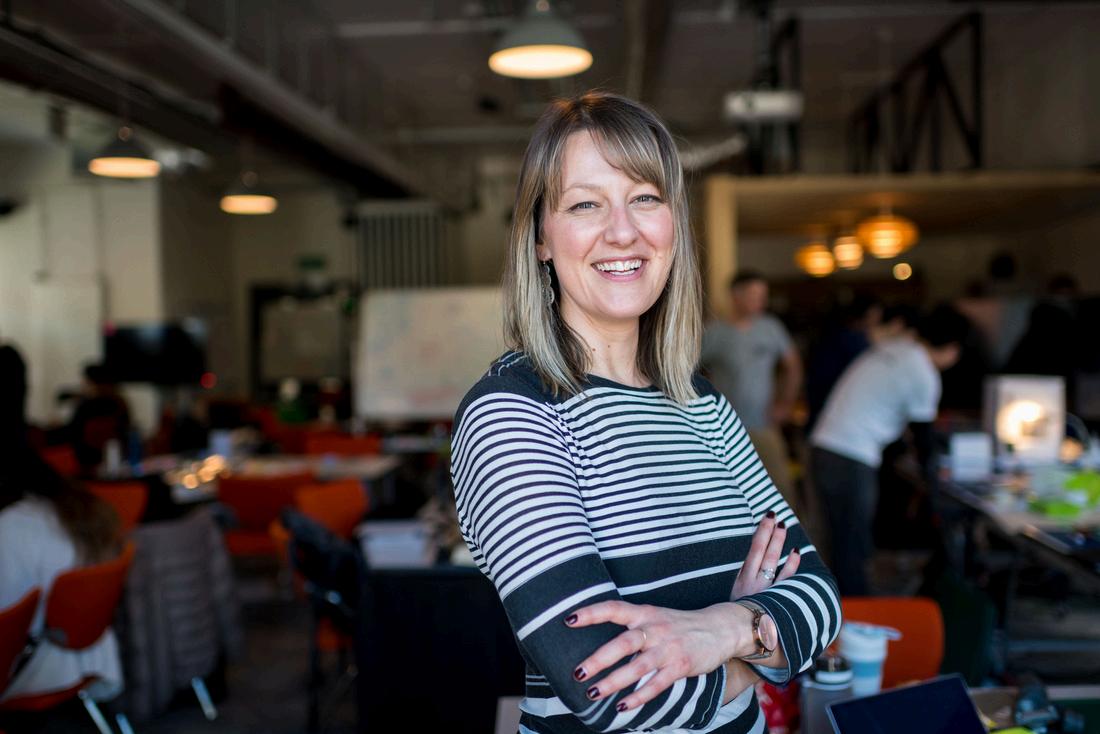
Emily Davies
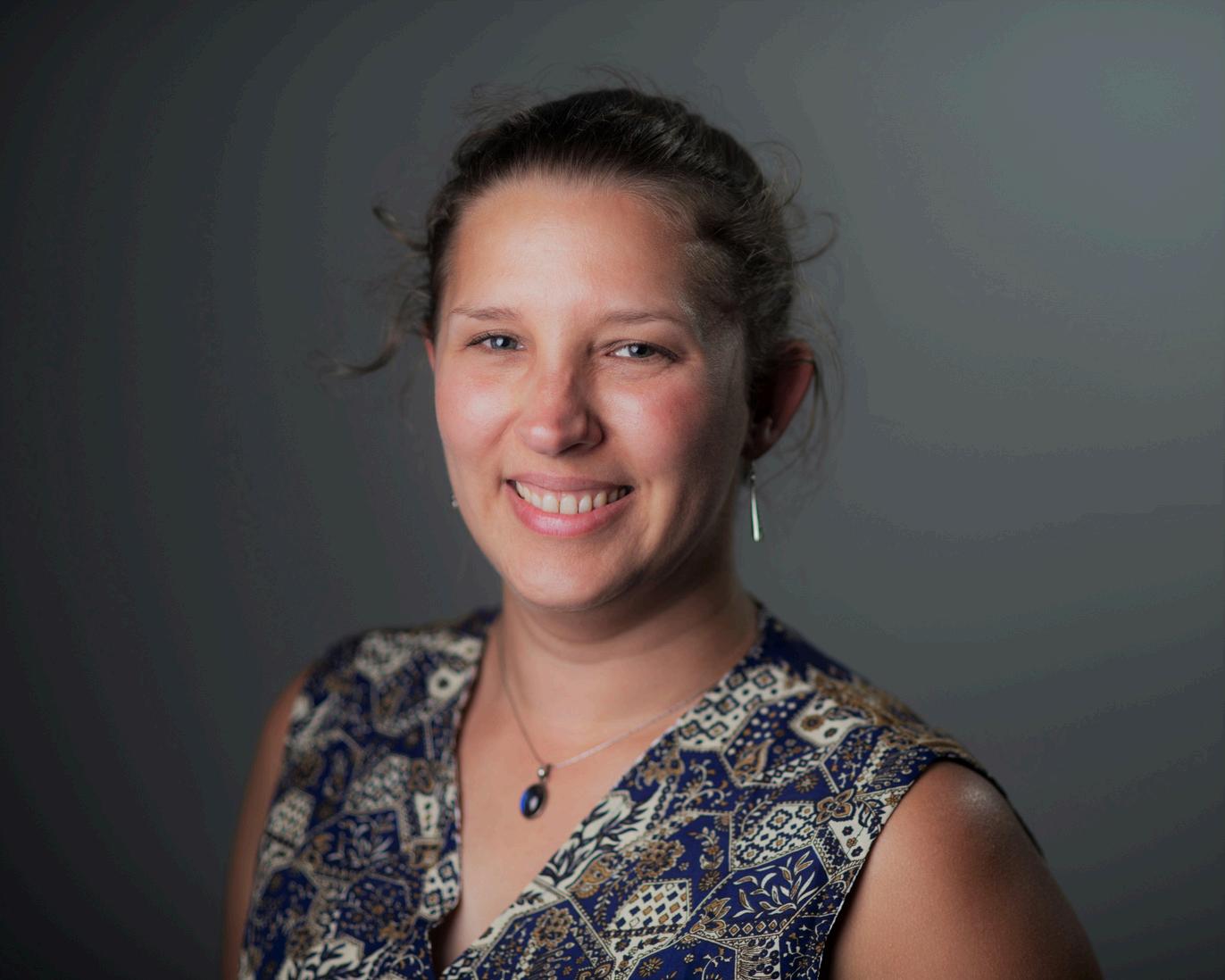
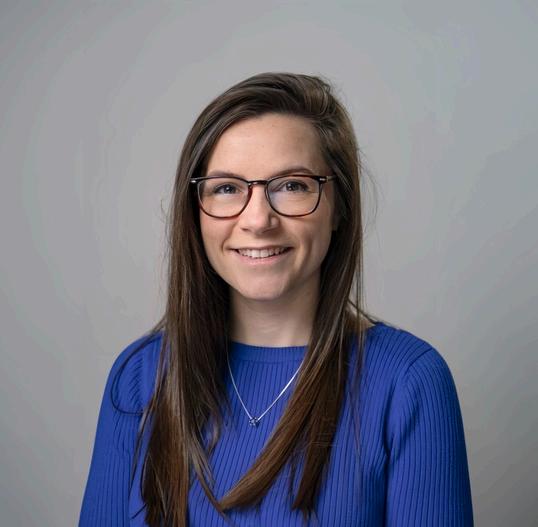
AmberStrong-Yates
JasmineHammond Head of Student Entrepreneurship
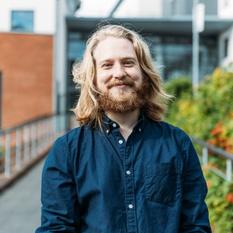
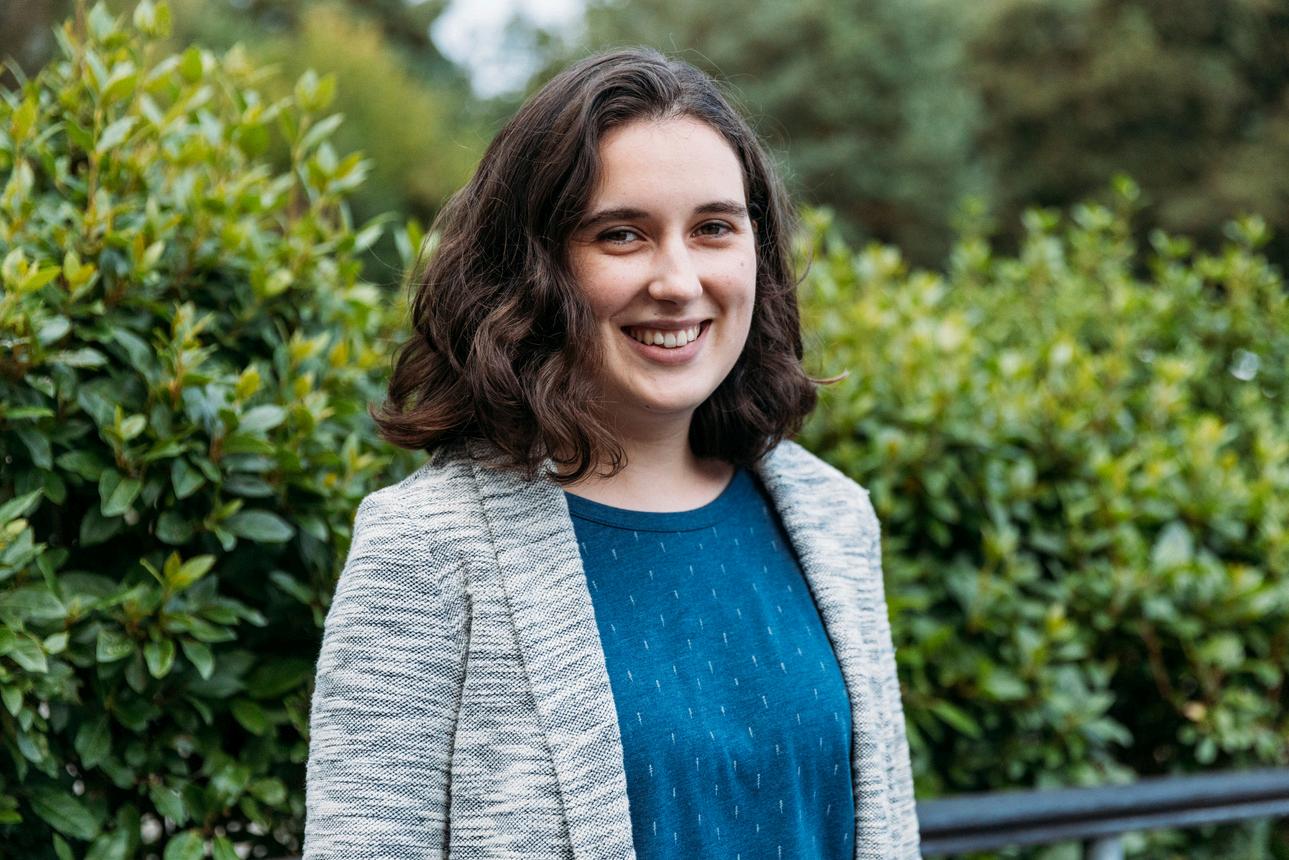
By Florence Sargent, Founder of RED-Scue
Hi, I’m Florence, I’m the founder of RED-Scue - the first energy restoration bites for athletes with a condition called Relative Energy Deficiency in Sport (RED-S). What started as our flagship energy bites has grown into a broader movement: offering coaching accreditations, running awareness campaigns, and organising conferences to spark change in how energy and performance are understood - especially in sport
When I began my founder journey, I thought the hardest part would be building the product But one of the biggest factors in my growthpersonally and professionally - has been building a network
It’s great to begin online (especially when remote-working), but in-person connections are often the most powerful Events like Exeter Innovation Hub Demo Nights, socials, and even spontaneous coffee chats have created the deepest, most lasting relationships in my journey so far.
Here are 10 things that helped me build RED-Scue from idea to impact:
01 LEARN FROM OTHERS BEFORE LAUNCHING.
Interning at three startups taught me how others marketed, pivoted, and communicated I developed my own voice by learning from theirs first
02 SHARE YOUR STORY AND POST BEFORE YOU FEEL READY.
Your experiences and why you started your business matter. Others’ pain points will likely be similar to yours. Don’t wait for perfection - start sharing early and often Posting helped me find my voice and build a community while still figuring things out
03 DON’T BE AFRAID TO GET IT WRONG.
Mistakes gave me data. The only way to learn what connects is to put something out there and see what sticks
I launched #GlobalREDSAwarenessDay and #TheREDsAlphabet to spark collective action It grew our community and aligned us around a shared mission Tools like Substack also helped me build a direct, free platform for our voice
Groups like Fearless Women’s Sports Collective, Women Who Build, and Launchbreak gave me guidance, inspiration, and people to grow with. I also applied for awards that helped me build a community, like the SETsquared x Student Startups Product Innovation Award!
05
REACH OUT FOR 1:1 CHATS.
Some of my most valuable lessons came from simply asking people I admired for a 20-minute Zoom. People are often more open to sharing their advice and knowledge than you think
The University of Exeter Student Startups team and their newsletter were pivotal for me early on. Don’t overlook what’s already around you
Pitch nights, founder meetups, and casual chats matter Business cards might seem oldschool, but they work Through this, our REDScue bites were accepted into our local bike shop, The Bike Sanctuary.
Consistency breeds loyalty and authenticity Keep showing up, and make sure you respond to comments and messages. That’s how you build real connections
Comparison is easy. But someone else’s win doesn’t take away from yours. The more you support others, the more it comes back.
Founding RED-Scue taught me that people connect most with your story - not just your product. Let them see who you are behind the brand. That’s where community starts
To read more about the business, you can follow @RED-Scue on Instagram, visit our Shopify website, or subscribe to the RED-Scue Substack to join the journey, campaigns, and conversations around RED-S in sport.
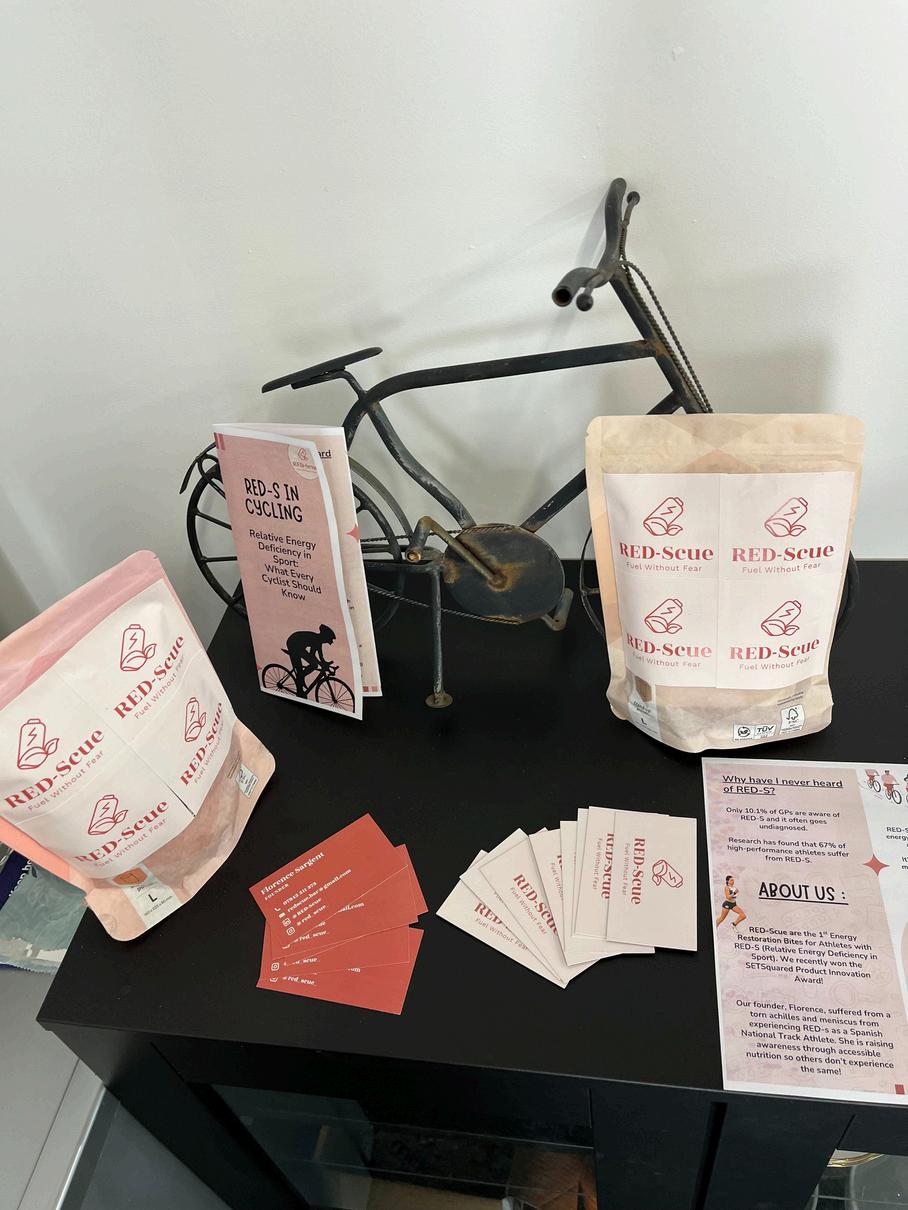
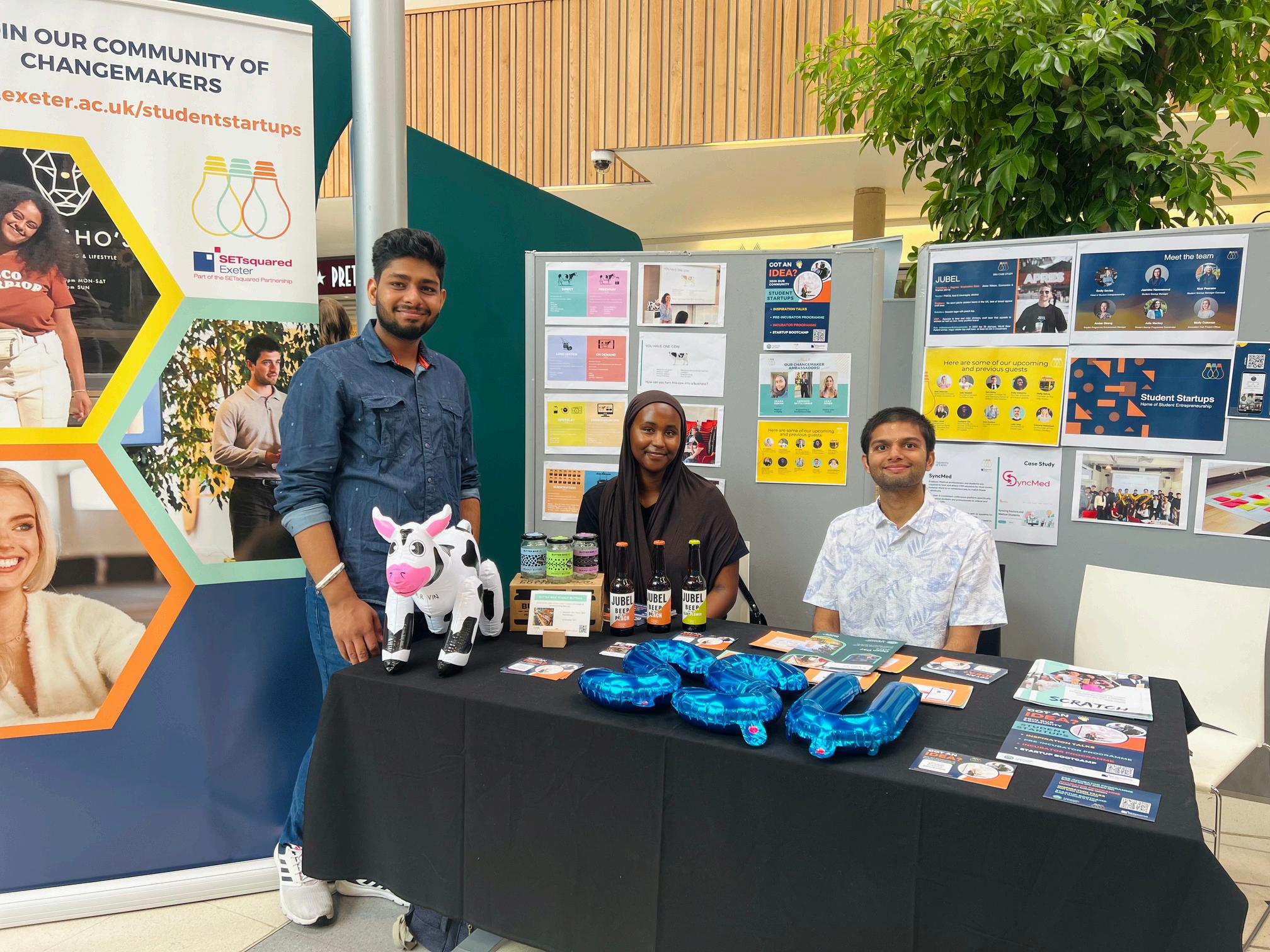
Interviews by Julia Mackay
The University Student Startup programme is designed to support students and recent graduates turn their early-stage business ideas into viable and sustainable business ventures. We sat down with Krisha Barot and Abhishek Aggarwal – who participated in our programmes this year – to hear about their journeys, from building their businesses to transforming their own entrepreneurial mindset.

Tell us about your business idea and what inspired it?
Krisha:
“My business idea was born out of a frustration I encountered repeatedly: having access to data but struggling to extract clear, actionable insights from it. I wanted to build something that simplified data storytelling That’s how Dataviz ai started - an AI-powered tool that turns raw data into clean, insightful visuals, with auto-generated
explanations to support decisionmaking.”
Abhishek:
“The spark came when I was working as a network admin in India I saw how exposed SMEs are to cybersecurity threats and how often their lack of resources leaves them vulnerable. I wanted to design something practical, affordable, and rooted in empathy”
What made you apply to the programme?
Abhishek:
“I saw Student Startups as an opportunity to make my dream a reality I was seeking structure and accountability The PreIncubator programme encouraged me to designate time alongside my studies to work on my idea.”
Krisha:
“I wasn’t sure I had what it took, but a friend encouraged me to apply. Looking back, it was one of the best decisions I’ve ever made.”
Krisha, you completed both the PreIncubator and Incubator programmes this year. What were your main takeaways from the programmes? How did they differ?
Krisha:
“The Pre-Incubator helped me go from idea to intention. It gave me the space to explore, validate early assumptions, and build the confidence to say, “Yes, I’m really doing this” I learned how to communicate my concept clearly, test it,
quickly, and accept feedback openly, even when it challenged my thinking.
The Incubator pushed me to build faster, think commercially, and operate like a founder - not just a student with an idea I learned how to structure a business model, engage in user research that moves the product forward, and most importantly, how to pitch with both clarity and conviction
Together, the two programmes gave me the foundation and the fuel. One helped me believe in the idea. The other helped me build it”
Tell us about your pitch experience.
Abhishek:
“Standing up to pitch was an adrenaline rush! I didn’t just share a solution - I shared a problem I care about The Q&A pushed my thinking and hearing positive reactions was energising.”
Krisha:
“Pitching was nerve-wracking but empowering I had to sharpen not just my narrative, but also my conviction It was a transformative moment that shaped how I now approach communication and leadership.”
Market validation is a crucial step in demonstrating the viability of your idea. Tell us about your market validation process.
Krisha: “I started with interviews and surveys, but
the most useful insights came when I actually let users interact with early prototypes. I learned that people wanted automated visualisation but only if they could trust the logic behind the insights That feedback shifted my focus to transparency: ensuring users could see how the analysis was generated. It also helped narrow my audience to earlystage founders and students, who have data but lack time or analytics expertise”
Abhishek:
“I started with a survey to measure SME awareness and budgeting behaviour around cybersecurity Responses validated the core issue: businesses understand the threat, but feel lost when it comes to solutions. I also learned that empathy isn’t optional, it’s vital when addressing sensitive topics like security and trust”
What accomplishments are you most proud of this year?
Krisha:
“Moving to the UK, winning entrepreneurship awards, and building a functioning business model from scratch But most of all, I’m proud of the mindset shift - learning to back myself and trust the process.”
Abhishek:
“Turning a theoretical idea into an operational MVP was massive. I also embraced pivots, feedback, and the unpredictability of building a startup without losing momentum”
Abhishek, you worked for the Student Startups team as a Change Agent researcher last term, investigating engagement with our programmes for students from different degree faculties. How did this experience impact your entrepreneurial journey?
Abhishek:
“My experience as a Change Agent researcher completely reshaped how I think about systems and people It taught me to approach problems from multiple stakeholder perspectives and to ground my ideas in real data - whether through surveys, interviews, or direct engagement”
Any advice for students considering entrepreneurship or the programme?
Krisha:
“Start before you feel ready You don’t need a perfect idea - just curiosity and courage. The programme supports you in that messy, uncertain space between idea and execution.”
Abhishek:
“Bring your full self, listen generously, and trust the process. The Student Startup programme gives you the tools and the courage to explore your potential.”
To register your interest in the Student Startups programme, visit:
www.exeter.ac.uk/studentstartups
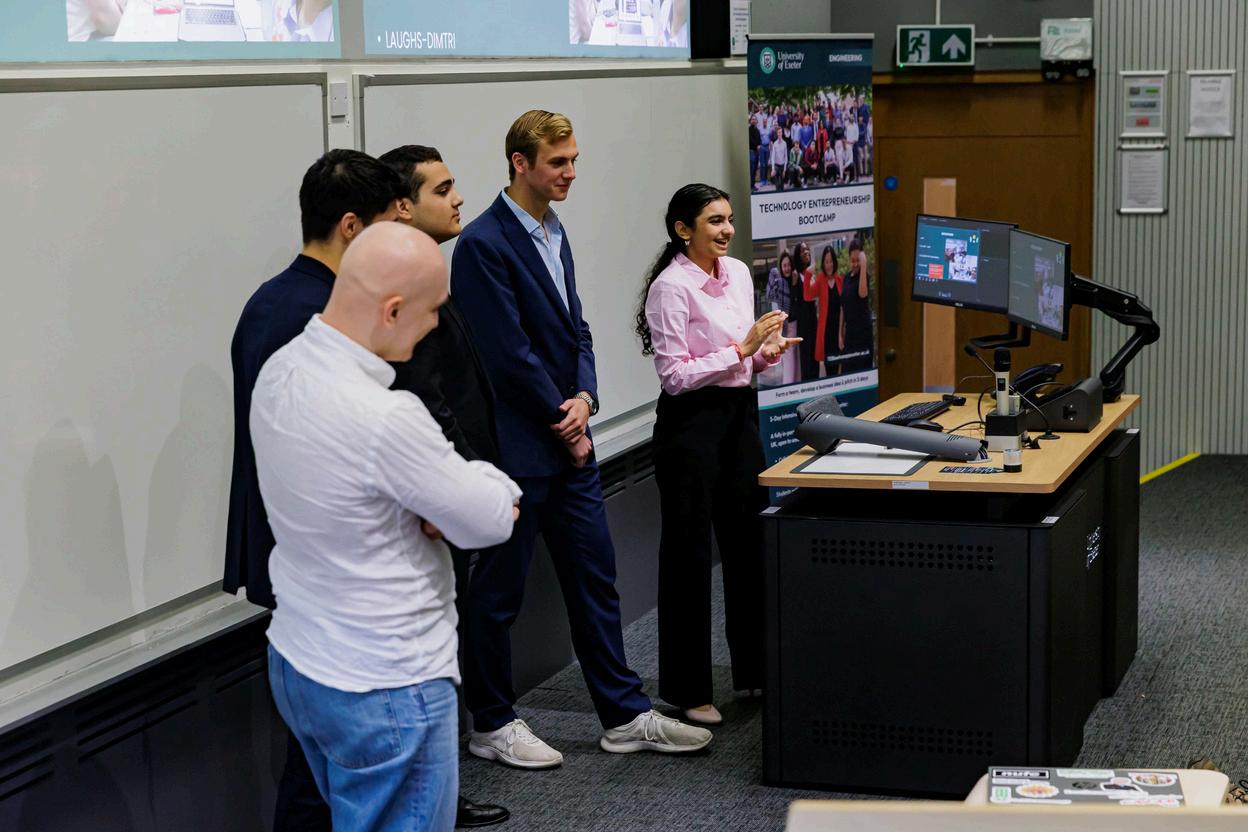
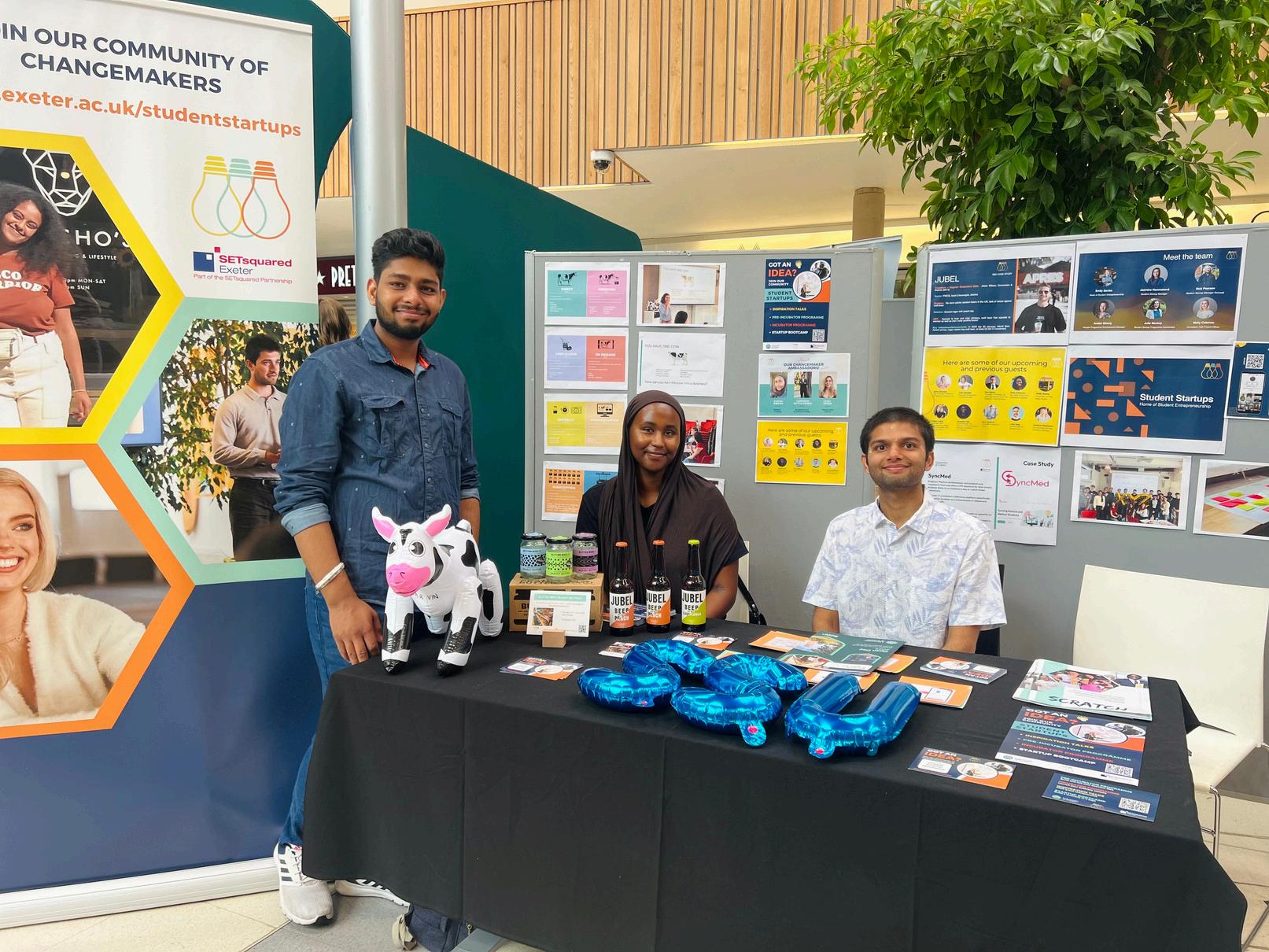


By Russell Parton
Photography: GRYD Energy
A solar energy startup co-founded by an Exeter alumnus has raised £1 million to power its expansion nation-wide.
GRYD Energy is a solar tech startup that deploys a UK-first subscription model so that developers and homeowners can install solar without paying upfront for the hardware
It was co-founded in 2023 by Tom Jordan,
a former University of Exeter Business School student who lives in Cornwall, where GRYD launched a successful residential pilot last year
Now, GRYD is ready to go national after securing £1 million in pre-seed funding, which will enable the business to accelerate deployment of its solar and battery systems through partnerships with housing developers, registered
providers and local authorities.
GRYD’s subscription model allows developers and homeowners to install solar without any upfront payments
The solar hardware is funded and maintained by GRYD for a guaranteed fixed monthly price that averages around £65 per month for a four-bedroom home across the 25-year life of the system.
The GRYD system is estimated to eliminate 12 tonnes of CO2 emissions per home annually and during the pilot in St Ives, Cornwall, it reduced residents’ energy bills by 15%
Tom Jordan, CCO and co-founder of GRYD Energy, said: “Despite solar being the cheapest form of energy, over 9 million UK homeowners can’t access the billsaving benefits of solar due to the high upfront costs
“Developers across the country – who already face increased build costs – have struggled to invest in the renewable technologies they need to decarbonise and futureproof their properties We want to prove how innovative solar solutions can make clean energy accessible and affordable to all.”
Tom grew up in Cornwall with a love for the sea and a deep connection to the environment and natural world
It was there, selling ice creams on the beaches from a young age, that Tom had his first taste of entrepreneurship, and he never looked back
He chose to study Business Economics, a degree that includes a placement year, which Tom spent working for FTSE at the London Stock Exchange –an experience that made him realise that corporate life wasn’t for him.
While at Exeter he took advantage of all the resources Exeter offers budding entrepreneurs, receiving advice and support from SETsquared Exeter and Exeter’s Student Startups programme
“University is great fun, isn’t it?” Tom says, reflecting on his time at Exeter “It’s an excellent mix of meeting new people and learning how to apply yourself to completely different situations, whether that’s corporate or entrepreneurial or something else entirely. For me, I left knowing I wanted to build startups I like the creativity and risk associated with building something from scratch that has the possibility to have real impact”
Exeter’s values and commitment to make the world a greener, healthier and fairer place is reflected in alumni like Tom, who would advise those looking to start their own business to follow their curiosities
“If you have strong conviction in your idea and feel connected to the bigger picture of why your business exists, my advice would be not to overthink the first step and just get started,” he says. “You might be surprised where it will take you”
By Julia Mackay & Megan Myer
A custom sportswear company, which was founded by two Exeter alumni whilst they were students, has gone on to appear on Dragon’s Den and supply sports equipment to the Paris Olympic games in 2024
Y1 Sport was launched by Chris Rea and Tom Carson in 2012 during their university days What started as a student-run business selling custom onesies and sportswear to friends and university clubs, is now a multi-million pound sportswear brand with 26 employees.
Inspired by the onesie craze whilst at university, Chris and Tom spotted an opportunity to create and sell a onesie for students, which was more affordable than other onesies on the market They added a personalisation element to the onesie which became increasingly popular They quickly branched out into sports gear and other clothing for sports clubs and societies, offering custom-made on-trend garments with a low minimum order The entrepreneurial pair made £100k in sales in their first year, and went on to pitch on BBC’s Dragons’ Den to drive their next steps
The co-founders’ Dragons’ Den appearance resulted in further media exposure in 2013 including interviews with ITV News, BBC Radio Devon and The Times They also received a £5,000 grant from the SETsquared Exeter Student Startup team, to support them in going full-time with the business after graduation.
Chris said: “The amount of press exposure we received after Dragons’ Den, combined with the grant from the University gave us the confidence to pursue the business full-time I am very glad that I started my business as a student when I had the opportunity to explore and test multiple ideas in a lowpressure environment, and build the skillset I needed to run a business later on.”

Their hockey sticks were used by 26 hockey players in the Paris Olympics last year, including two gold medal winners, and Y1 Hockey boasts the second-highest Instagram following of any hockey brand worldwide.
Alongside running the business, Chris and Tom were both playing hockey at an international level (Tom played for Team GB at the 2014 World Cup, while Chris represented the USA at senior international level). Drawing on their expertise in the sport and first-hand insight in the industry, in 2016 they launched Y1 Hockey, which specialises in hockey equipment, including hockey sticks, bags and gloves.
“I am very glad that I started my business as a student when I had the opportunity to explore and test multiple ideas in a low-pressure environment, and build the skillset I needed to run a business later on.”
Today, Y1 Sport supplies custom sportswear to more than 1,000 university clubs and societies across the UK, with Exeter clubs remaining a key part of their community The company has also maintained close ties with the University, regularly recruiting Exeter students for industrial placements - some of whom have gone on to work full-time for the brand
Chris said: “It’s amazing to think in 2018 we were making £300k in revenue, and we are now on track to make £4 million this year The next sport we are excited to focus our efforts on is Padel, which is the world's fastest growing sport today.”
To find out more, visit: www.y1sport.com
By Julia Mackay
When Tomiwa Adeoye arrived in Exeter as a first-year student, he quickly realised something was missing This popular university city, which typically attracts 30,000 new students every year, lacked the vibrant, culturally diverse entertainment that reflected his own heritage.
“I listen to a lot of music, mainly Afrobeats, some Amapiano and also some related sounds that benefits people of African heritage.”
“I needed a balanced lifestyle to succeed academically at Exeter,” he explains “And the entertainment in the city wasn’t giving me that.”
Drawing on his passion for African music and entertainment, and his creative background as a producer and videographer, Tomiwa launched AfroExeExperience to bring Afrobeats, Amapiano, and other underrepresented genres to Exeter.
“My goal is to provide entertainment in underrepresented cities, but also to promote underrepresented talents as well.” Tomiwa says.
To help him achieve this goal, Tomiwa joined the Student Startup programme, progressing through both the PreIncubator and Incubator stages “I had a lot of anxiety at first,” he admits “But the support I got helped me regain the confidence I needed to make AfroExe a reality.”
Since then, AfroExeExperience has hosted four major events in Exeter, with a fifth scheduled for September. Attendance has grown from around 140 to over 200 per event.
“We've been able to grow that fan base, grow that audience and also diversify into other underrepresented cities.” Tomiwa says.
Marketing and branding has been key to its success. He explains, “There's something that people have to connect with in order to say, ‘Oh, there's a reason why I'm going for this event’”
Tomiwa and his team have put careful thought into how they market the brand, ensuring it resonates with other students
and music fans like Tomiwa who want to see their musical preferences represented in Exeter’s entertainment scene
AfroExe isn’t just about music - it’s also about visibility and building a community around shared interests and representation
“When you search TikTok for entertainment for Black people in Exeter, there’s little or nothing,” he says. “That’s why I wanted to bring the taste of this world to Exeter It's not only for people of colour, but for people that want a different taste.”
AfroExeExperience events feature a mix of local and national talent, offering a unique platform for underrepresented artists - DJs, instrumentalists, and performers - from Exeter and beyond.
Building something new in a city like Exeter hasn’t been without its hurdles From unreliable taxi services, to convincing venue owners of the demand for Afrobeats entertainment, Tomiwa has demonstrated persistence and self-belief
“People said, ‘Why not just do it in London or Birmingham?’ But that’s not what AfroExe is about,” he says. “It’s about taking up the challenge and catering to people like myself who want this kind of entertainment in the city”

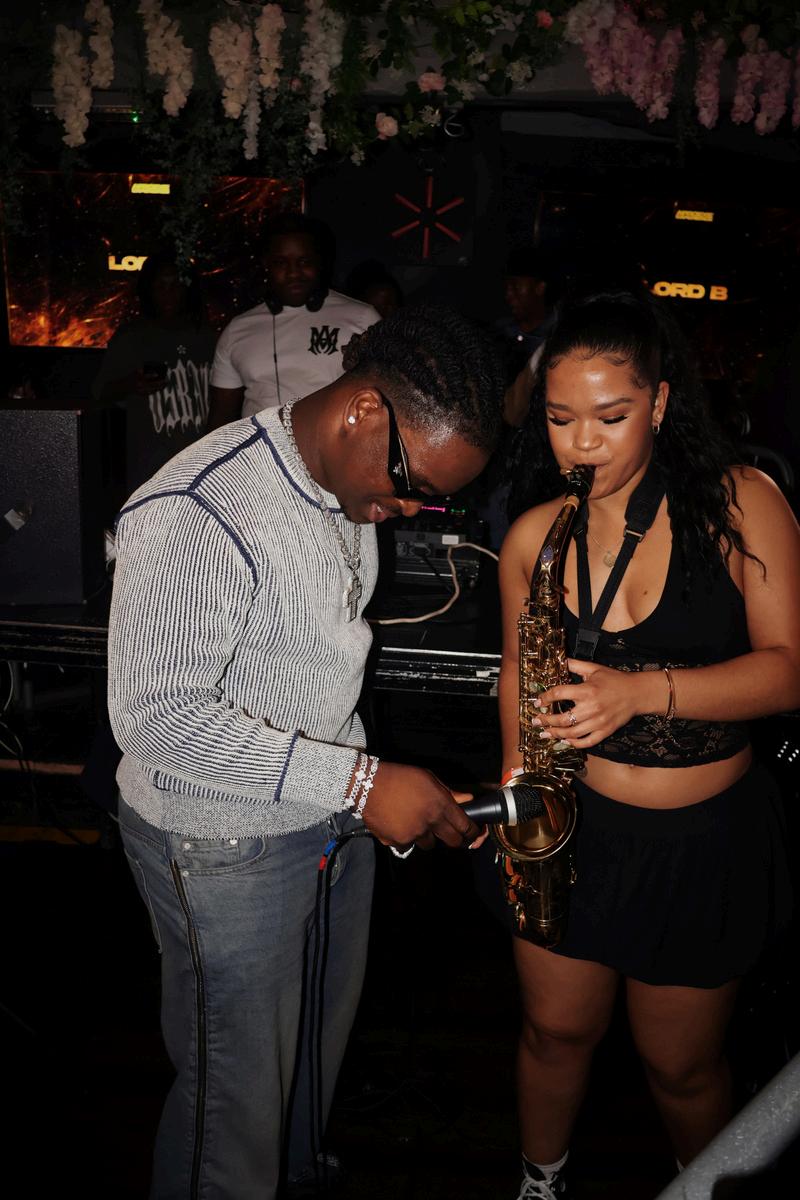
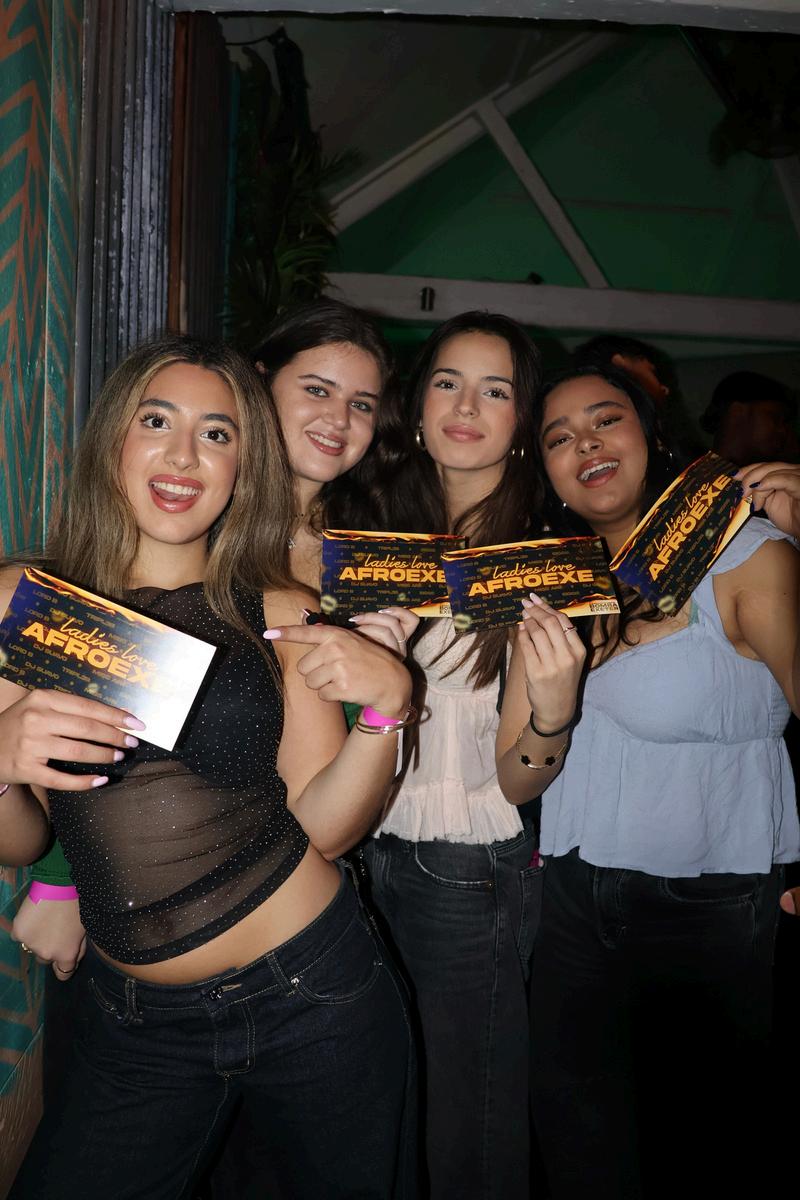
Tomiwa’s deliberate choice to deliver this events experience in Exeter has drawn people to the city. As well as welcoming Exeter students and locals, artists and attendees travel from Manchester, London and beyond to experience these events and feel the sense of belonging
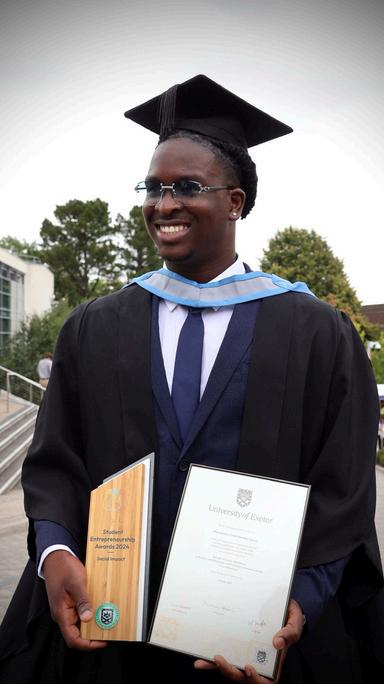
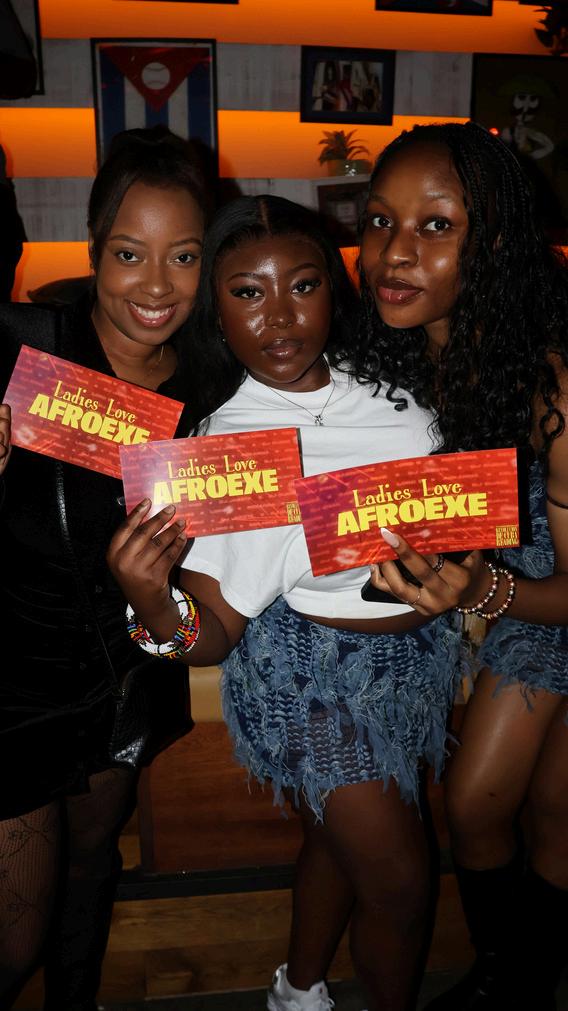
enjoying the entertainment” he says
Currently in the works is introducing new “Lounge Sessions” for more low-key, intimate music nights that might appeal to a different audience
Advice for future changemakers
“People say, ‘I actually love the city,’ after coming to an AfroExe event,” Tomiwa shares proudly
community
What sets AfroExeExperience apart is its heart. “The community is at the core of it all,” Tomiwa says “We’re not just throwing club nights We’re joining people and the experience together”
The business is constantly evolving. Tomiwa listens to feedback, adapts formats, and ensures that all guests, of different ages, abilities and backgrounds, feel welcome
“It’s nice to see people of all backgrounds
For students with ideas, Tomiwa’s advice is to simply act on them
“Follow your passion If you make an entrepreneurial project around your passion, even when it gets hard, you’ll want to keep going,” he says. “Slow motion is better than no motion”
He encourages aspiring entrepreneurs to build systems, find like-minded collaborators, and use the resources available - even if their idea feels “stupid” at first “There’s a reason why that seed is in your head,” he says “Believe in it, believe in yourself, and succeed” Instagram - @AfroExeExperience
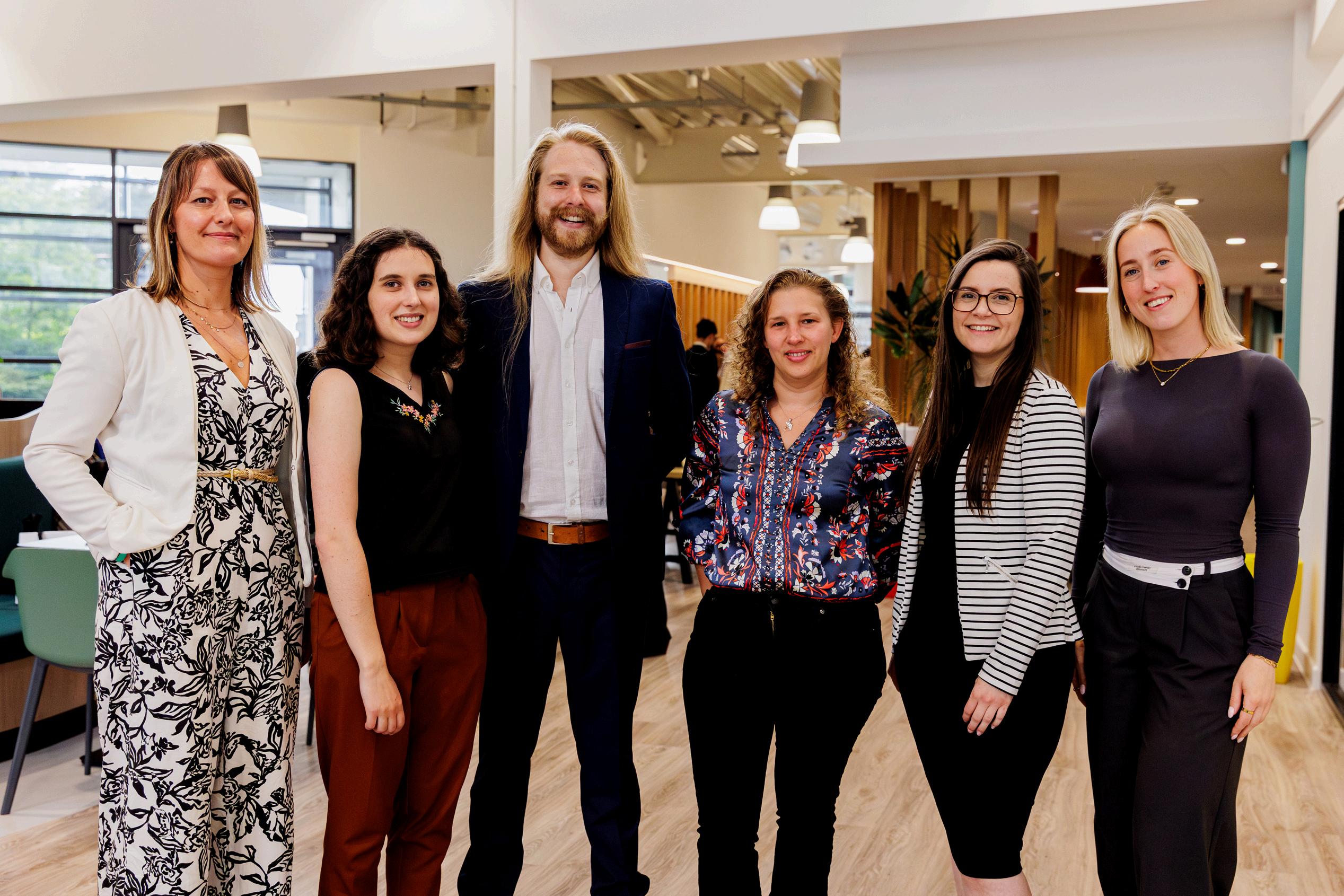
By Russell Parton
Photography: Emily Appleton
The University of Exeter celebrated the entrepreneurial achievements of its students earlier this month, bringing together students, staff, alumni and members of the local business community for its Student Entrepreneurship Awards.
At the heart of this evening of recognition and celebration was the Student Startups
programme – open to all Exeter students with an interest in developing business ideas
This academic year the programme received 269 applications to its core incubation pathways, offering tailored support to students at every stage of their entrepreneurial journey
Several of these ventures were featured in the event’s business expo, including Jeremy Shorter with his skills-swapping platform Flairswap, and Jack Bond with VisiBall, an innovative light-up tennis ball.
Also showcased was the With Proficiency in Innovation & Entrepreneurship (WPIE) pathway – a degree enrichment option allowing students to study entrepreneurship through a selection of dedicated modules
This academic year, over 3,000 students enrolled across 11 entrepreneurship modules, reflecting growing demand for innovation-driven learning WPIE Co-Director Bill Russell, from the University of Exeter Business School, addressed attendees to share highlights from the year.
A key moment of the evening was a keynote speech by Exeter alumna Amy Bray, founder of the environmental charity Another Way. Amy shared her inspirational journey building a youthled organisation focused on climate education and sustainable living, delivering workshops and talks in schools and operating several nonprofit, zero-waste shops
The evening also celebrated the outstanding achievements of six student founders from the Student Startups programme, who were recognised with Startup Awards across a range of categories:
Social Impact Award – Jake Keast, Micaella Joaquim and Nicholas Latham for VITOVA, a platform using smart software to develop personalised exercise plans for patients managing multiple health conditions, with the ambition of making preventative medicine a key part of NHS healthcare
Environmental Impact Award – Ruairi Duignan and Ammar El Beik for Turbo Zone, providing electric vehicle (EV) charging solutions and installation services tailored to the education sector.
Tech Innovation Award – Krisha Barot for DataVizAI, an AI-powered tool that simplifies data visualisation for business analysts.
Product Innovation Award – Florence Sargent for RED-Scue, a recovery-focused energy bar designed for athletes affected by Relative Energy Deficiency in Sport (RED-S)
People’s Choice Award – Adam O’Neill, recognised by fellow students for his technical support and collaborative spirit throughout the programme
Spirit of Entrepreneurship Award – Lisa Hoerning, recognised for her high level of engagement, adaptability in pivoting her business idea, and unwavering commitment to sustainability and community impact
The awards were presented by Chris Evans, Director of Innovation, who hosted the ceremony, with an opening speech by Emily Davies, Head of Student Entrepreneurship
Emily said: “It was really special to celebrate the success and impact of our student entrepreneurs in the company of colleagues, family and friends. It is a privilege to work with such creative, purpose-driven and ambitious young people and I am confident that they will go on to make transformative impact in the world”
The University of Exeter is committed to supporting and enabling innovation and entrepreneurial action across our community and into the wider region There are a wide range of programmes designed to support Founders at different stages of their journey and one of those is the Exeter Innovation Accelerator (EIA) We sat down with three key stakeholders from the EIA to find out more
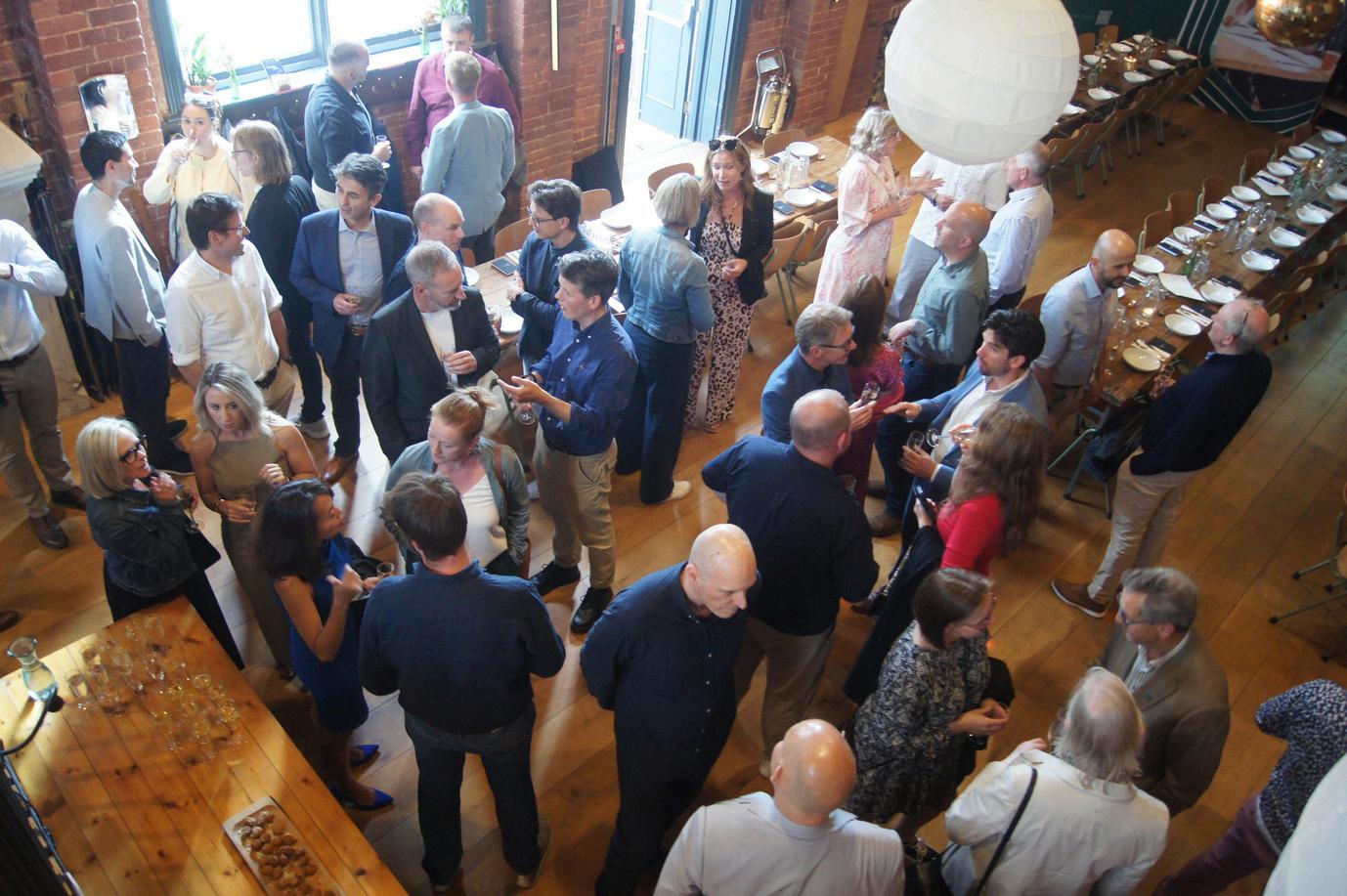
Interviews by Emily Davies
Colin Dart leads Business Acceleration at the University of Exeter - curating and delivering programmes that help founders to build attractive investment opportunities, and resilient, sustainable, growth orientated businesses
Can you tell us more about the Exeter Innovation Accelerator (EIA) and what kind of ventures are accepted into the programme?
The EIA is open to start-ups and SMEs from any industry that can evidence their STEMM innovation credentials, R&D commitment, and a scalable business model The Accelerator is a 12-month programme of support designed to guide founders through the early-stages of venture growth, from market validation through to seed investment Incorporating workshops, 1:1 support, events, and peer learning, the programme covers everything from governance and intellectual property, through to go-tomarket and sales and business development strategy
What do you believe the EIA offers that is different or distinct from other Accelerator programmes?
Firstly, the EIA is designed to support founders as they undertake their journey, as opposed to sending them out into the world with an untested new skillset The 12-month timeframe is critical in enabling us to be there alongside a venture’s growth
Secondly, everything we deliver is done so with the care of someone invested in the
growth of the founder as an individual, as much as the success of the venture Enabling a founder to become an entrepreneurial leader in the region unlocks more than just a metric.
What are the greatest challenges and opportunities of being based in the Southwest?
There is an undeniable ceiling to the startup capital deployed in the Southwest. This certainly isn’t an insurmountable obstacle for a growing venture, but is one that requires careful planning regarding their long-term investment strategy
Otherwise, the Southwest provides the cornerstones of a successful innovation ecosystem, including quality of life, transport links, high speed connectivity, RD&I hubs, startup accelerators, shared working space, and more. The southwest also offers a unique opportunity to be at the heart of one of the UK’s greatest natural capital areas.
What advice would you give to any aspiring Founders/early-stage entrepreneurs?
Find support and find it early - be that an accelerator, mentoring scheme, consultant, or simply a peer network When looking for that support for yourself and your venture, map out what you are trying to achieve before looking for the best fit. This will ensure that you spend your valuable time wisely

Jacob Keast graduated from the University of Exeter’s Medical School in 2025 with a distinction in Medicine & Surgery and is also an elite athlete, coach and Founder. Jake joined the EIA with his venture VITOVA, in April of 2025, following an introduction from the University's Student Startups Team.
Can you tell us a bit more about the inspiration behind VITOVA?
Having recently graduated from Exeter’s medical school, I have seen first-hand the impact that physical activity can have on our health and wellbeing Not only when young and healthy, but to support quality of life with long-term health conditions.
Pairing this passion to my background in triathlon and sports coaching, my co-founders and I saw an opportunity to support people in making lifestyle changes via a software like VITOVA, whose adaptive algorithm creates professional exercise plans based on a person's multiple health conditions, medications, and exercise history.
How long have you been in the Exeter Innovation Accelerator (EIA)?
VITOVA joined the Exeter Innovation Accelerator in April of 2025 The business was gaining traction, and we were starting to get into the harder conversations, development, and feasibility trials that come with a health-tech business The EIA seemed well-placed to offer the venture the right support in its next phase of growth and development
What has been the biggest opportunity or benefit of being part of the current cohort?
The current cohort is full of passionate, driven, and insightful founders who are keen to share their learnings and collaborate for group benefit and the EIA team have provided unwavering support and insight. Colin Dart provides technical insight, knowledge of the pitching, investment, and start up landscape and clear direction and advice to our questions Alex Spalding (Business Advisor in Residence) and Julie Waddell (Entrepreneur in Residence) offer opportunities for reflection, critical questioning, and space to raise concerns about any challenges we're facing.
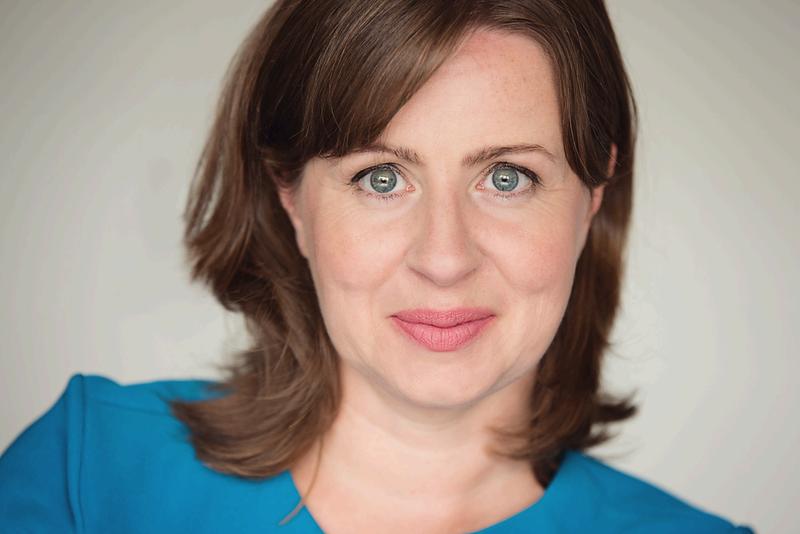
and supportive person who wants nothing but the founder’s success Doing the right things, in the right way at the right time is key and an EIR can help to highlight those things and keep the founder focussed.
How do you support Founders?
Julie Waddell is an award-winning entrepreneur and successfully started, scaled and exited a hugely successful food brand called Moorish Ltd in 2024 Julie is also an experienced mentor, speaker and broadcaster and is currently an Entrepreneur-in Residence with the EIA
Can you tell us briefly about your role as an EiR with the Exeter Innovation Accelerator (EIA)?
It’s a hugely enjoyable and varied role which involves working with entrepreneurs across a wide range of sectors, to provide an external view that is completely impartial As some-one who has “been there, done that”, we understand the highs and lows of Founder life and can see the personal as well as the business story behind the company and where it’s at today
Building and growing a business is not an easy journey and success is never guaranteed. An EIR is a knowledgeable
We meet once or twice a month and have a catch up on what’s happened since we last spoke, any pain points and a look to what’s next in terms of priorities and focus. Sometimes I bring in my own network of contacts to help the founders or it could be providing recommendations on external support roles or funding There’s a significant part of the conversation that involves looking at the strategy and talking through how to turn it in to tangible actions
Can you tell us what appealed to you about becoming an EiR with the EIA?
I had such an amazing experience with building, growing and ultimately selling my own business in a significant exit deal last year, that I really wanted to use my time to give something back to the entrepreneurial community I had so much help, support and advice from incredible people as I went along that it was always in my mind to pay it forward when my time came to be ‘out the other side’!
If you’d like to find out more about the Exeter Innovation Accelerator, you can speak to a member of the Student Startups team or find details online at Exeter Innovation.
Adam O’Neill is currently studying for a BSc Computer Science. He has also been Head of Tech at Exeter Entrepreneurs Society, Treasurer and core team member of the Google Developer Student Club and President of Exeter 5-a-side football Adam has enrolled in the Student Startups Incubation programmes and won the ‘People’s Choice’ Award at the 2025 Student Entrepreneurship Awards
You have said that you are ‘Obsessed with building things that help people!’ Can you tell us where that began or if there was a moment you realised that was something you felt passionate about?
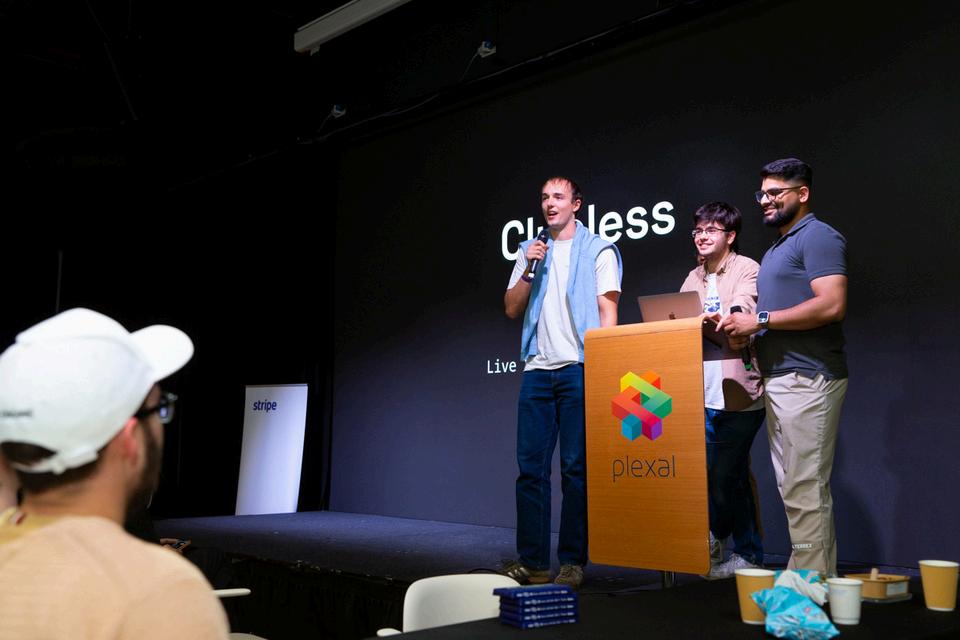
I did the typical Computer Science student thing: make a product no one needs. This is a hard lesson, but everyone will have it What I really mean here is that it’s about building real tools for real people, finding a gap and filling it.
You’ve joined a lot of hackathons lately – what excites you and motivates you to attend so many?
Yes! They’re great fun. I’m at a funny crossroads where I’m not quite ready to fully commit to a new project, but hackathons give me the space to meet some awesome people and build some cool things I’m learning lots from others and enjoying the process of making something from 0 to 1. It’s great networking too - I’ve met so many VCs and seed investors and have
For somebody that has never attended a hackathon before, why should they get involved and what would be your top tips?
The value is meeting people and learning some new things, new tech or new industry knowledge! My top tip is to focus on a winning idea, not the means of making the product. Ultimately people use the product and don’t care how it works. You won’t get much sleep either, so you’ll have to dig in!
What’s next for you?
I’ll be returning to Exeter in September for my final year I’m currently at Meta as an SWE; the corporate world is very different to building startups and I feel that. I’ve been in contact with various top startup incubators about going full time on something stealth, which I can see happening in the near future I’ve been meeting with lots of seeded & series A founders and learning and growing from them. Maybe I’ll even join one of them!
What’s the best advice you’ve been given and/or what advice would you give to somebody just starting out on their entrepreneurial journey?
Build something people want It’s a harsh truth! The best way to validate this is to jump on 100+ calls and ‘MOM test’ people! Take a look at the MOM test - it’s a super useful concept.
After speaking to the investors at Entrepreneur First, the main advice that resonated with me is on a slightly deeper level. What do you really want to get out of it? If you want to raise £10m+ and build the next unicorn, you’re potentially dedicating the next decade of your life for this project, of long hours and extreme ownership. Have a long think about what matters to you, and where you see the next 5 years… and this is where I find myself now!
Finally, just go for it, what is there to lose?
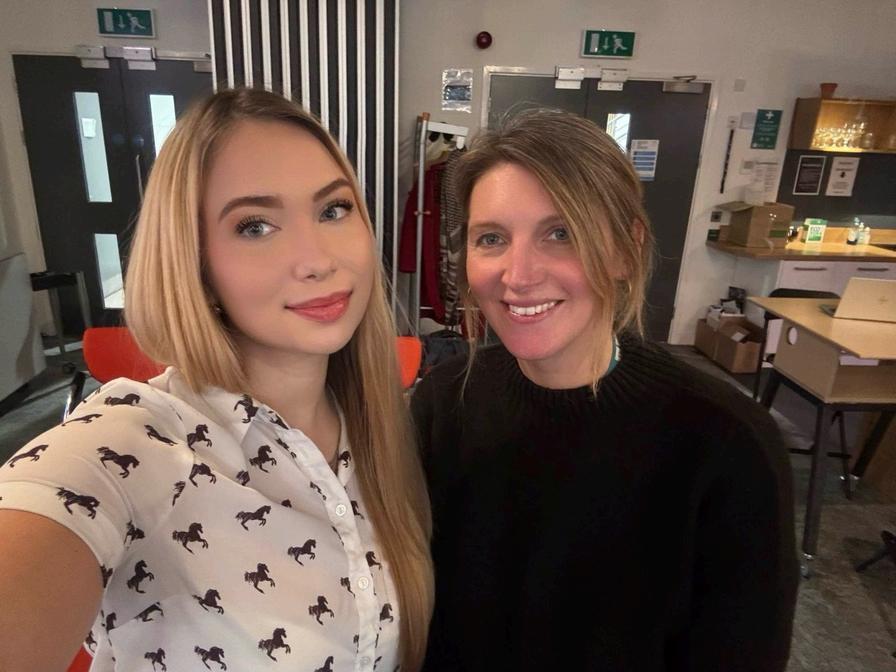
By Molly Coleman
'We’d absolutely encourage other students to engage with city centre businesses and organisations
Placements like Alina’s are a brilliant way to gain hands-on experience, but also to build connections and see first-hand the positive work taking place across Exeter. From public realm improvements to placemaking and events, there are so many opportunities to get involved and help shape the city’s future'
This is what Nicola Wheeler, CEO of
InExeter, the City's Business Improvement District, said when asked about student placements in City Centre Businesses and the opportunities available to students Nicola and the team at InExeter recently had a University of Exeter student work with them as a Project Management Intern, a connection that came from a Student Startup Inspiration talk in January.
The Inspiration talks are hosted by the Student Startups team each term, and welcome students to hear from a variety of speakers, from business owners, CEOs,
startup gurus, consultants and more. They are centred around current themes and specific topics and involve an introduction from the speakers, followed by a panel talk where students are able to ask questions and listen to discussions on key points
Alina Hamova, a first year Business and Management student, attended the talk and was inspired by Nicola's story and the impact InExeter is making on the city. When the talk ended, she stayed and spoke with Nicola, where she mentioned she was looking for work alongside her studies At that point, Alina says they mostly spoke about other local businesses that InExeter works with and possibilities with those companies, and it wasn't until a few days later when she followed up with Nicola directly that she expressed interest in working specifically with the InExeter team
This led to a 150-hour placement and getting to work with the team on Exeter's application for Purple Flag status, a national accreditation recognising excellence in the management of town and city centres at night. Alina was responsible for researching and project managing the process, liaising with a range of city partners and working on detailed documentation Alongside the application, she also contributed to the creation of a dedicated Night- Time City map.
Talking about what she's learned from the experience, Alina described it as a great hands-on experience, that's helped her understand how local organisations collaborate, and strengthened her
research, communication, project management and stakeholders’ engagement skills. Above all though, it empowered her to take full ownership of the project, leaving her feeling confident and valued
Nicola said of Alina's time with the team: 'Alina was a fantastic addition to the team during her time with InExeter As a student, she brought fresh perspective, curiosity, and real enthusiasm to the Purple Flag project. Her academic background and interest in city life and public spaces meant she quickly grasped the project’s aims and contributed valuable insights, particularly around safety, accessibility, and how young people experience the city centre at night'.

Leaving us with her final advice to other students, Alina encourages others to take every opportunity that comes your way as you never know which moment could lead to something meaningful and make a real impact
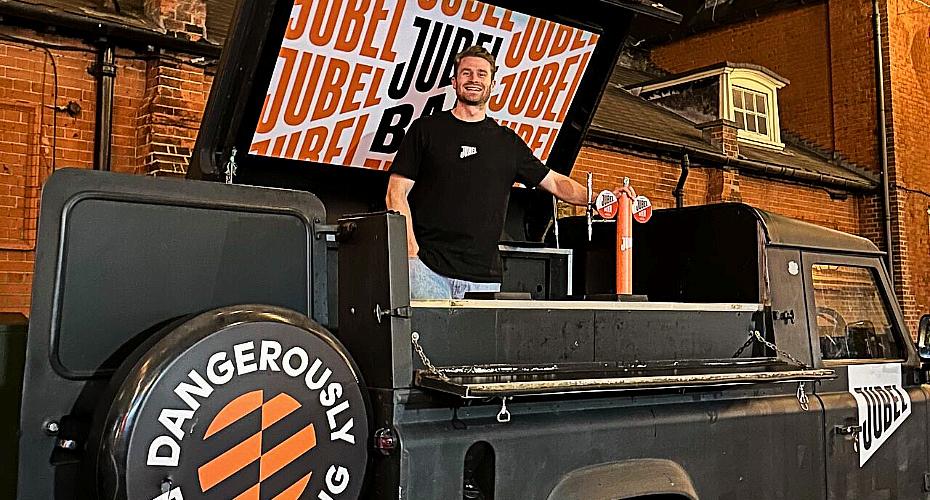
Jubel becomes national retailer’s best-seller
By Andrew Merrington
A University graduate is celebrating a remarkable business milestone after seeing his ‘apres-ski’ inspired beer brand become a number one best-seller for a leading UK retailer.
The innovative fruit lager JUBEL, founded by Exeter Business School alumnus Jesse Wilson, is now the most in-demand beer in a major national supermarket, building off the back of four years of triple-digit growth.
The World Beer Award-winning brand is also stocked by many more major retailers and served on draught in nearly 1,000 pubs nationwide
It’s been a remarkable success story for JUBEL, whose origins can be traced back to a University ski trip to the French Alps, where Jesse discovered bière-pêche, a pint of lager with a peach top Unable to find anything similar back in the UK, Jesse began to formulate the seeds of a business idea – one that would germinate in 2018.
The company’s early success was supported by the University of Exeter’s Student Startups programme, which awarded Jubel a grant that enabled them to take on three student interns for a market research project Within three months, JUBEL had expanded into 300 pubs, and it secured a major listing with Sainsbury’s in its first year Today, the brand is also stocked in Tesco, Waitrose, Ocado, Whole Foods and other leading outlets.
Nick Pearson, Startups and Commercialisation Manager for Cornwall, said: “Knowing the University of Exeter Student Startups Programme played a small part in the JUBEL journey early on, we are all hugely proud of the success Jesse and his team have achieved.”

“Their open-book approach to supply chain, dedication to employee wellbeing and genuine commitment to minimising their environmental impact are sectorleading. The company’s popularity and success demonstrate what is possible when a brand truly lives its values”
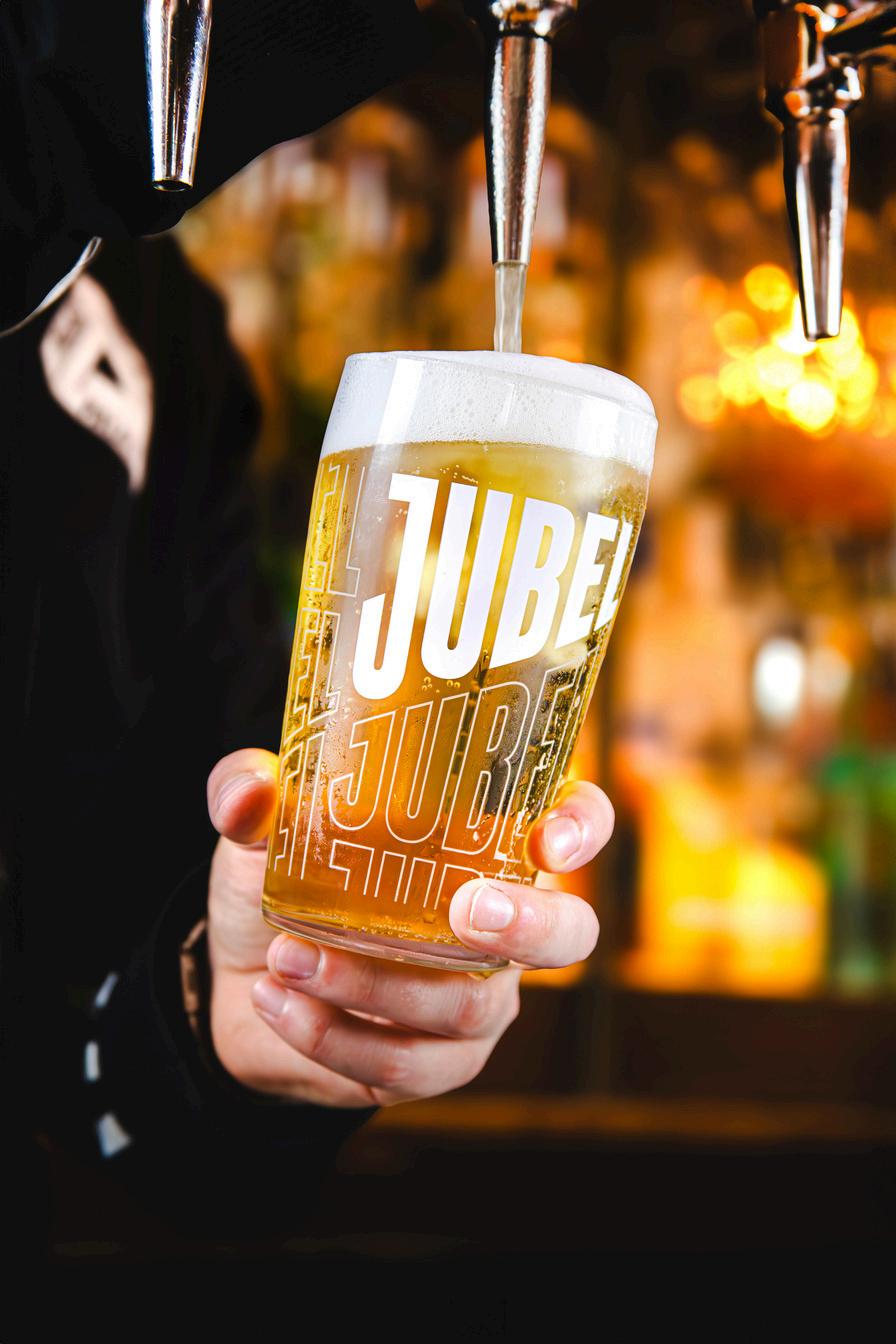
Since that initial startup grant, the University has offered further developmental support to JUBEL This included a Covid-19 relief grant from the startups programme that enabled it to develop its online sales infrastructure, and entry into the Santander Universities Entrepreneurship Awards, where it reached the national finals
Now in its seventh year, Jubel boasts 40 employees, with team members based across the UK, including in Cornwall, where two employees oversee their partnership and distribution with local pubs in the Devon and Cornwall region.
In addition to commercial success, Jubel has also developed strong sustainability credentials, including its achievement of B Corp certification It has also reduced its carbon footprint by 100 tonnes; introduced a wellbeing budget for employees; and was named The Times Best Small Business to work for Women in 2024
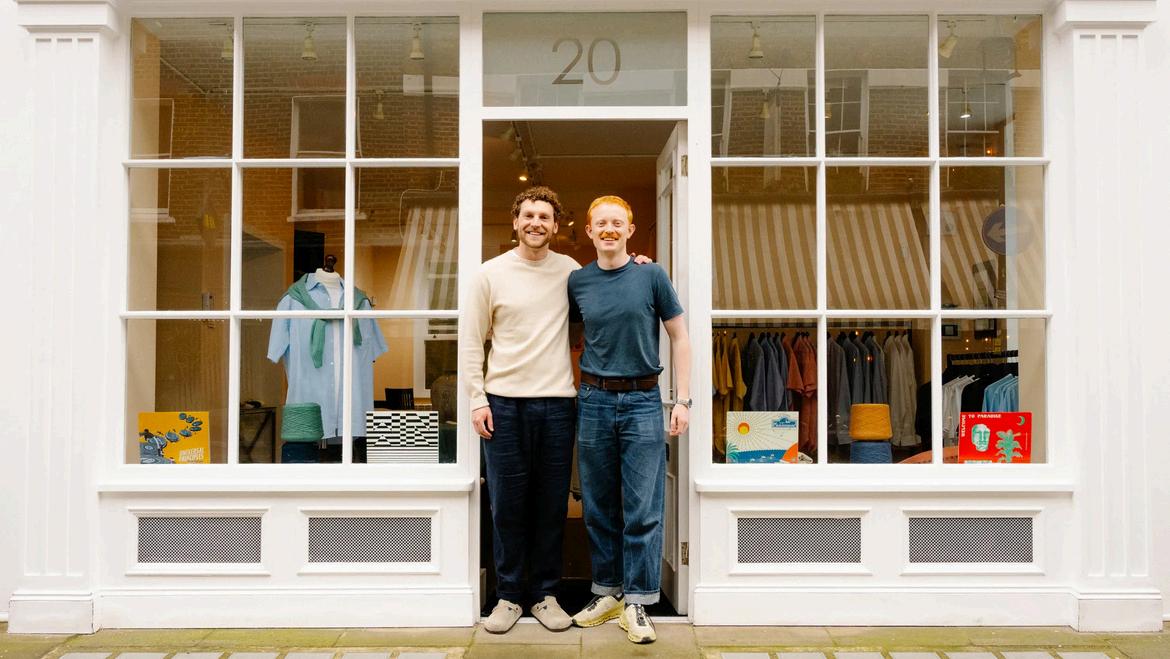
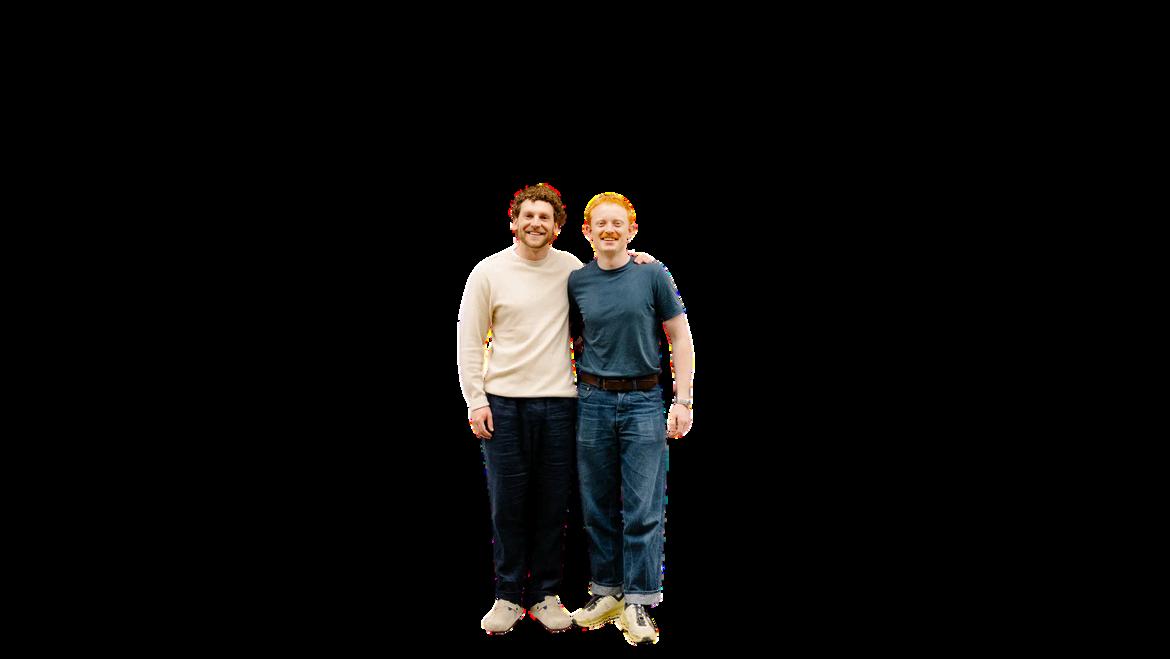
By Julia Mackay
When Exeter languages graduate Billy Sims-Hilditch launched his menswear brand Simswear with co-founder Rory, they knew that customer interaction with the brand and the buying experience would be key.
Launched in 2021, Simswear prides itself on producing high-quality sustainable clothes here in the UK, which are designed to last a lifetime.
Starting their journey as an online brand, initially making sales through their website and social media, Billy and Rory knew that a pop-up shop was the next step.
“We just wanted to get ourselves into a physical space,” Billy explains “Selling high-quality goods online is toughpeople want to touch, feel, and try things on. Especially with knitwear, where the texture and weight are everything”
Simswear ran their pop-up shop for six months in Marylebone, London.
Reflecting on how they secured the space, Billy says “We spent time walking around different areas of London, trying to find empty retail spaces, using land registry check to see who owned them, and reaching out to landlords directly.”
The space they found had been vacant for three months, and they struck an
arrangement with the landlord where Simswear would pay a nominal rent to help cover business rates, all while bringing life to an otherwise vacant shopfront This was welcome news amongst other businesses and shop owners on this popular London street.
“It was amazing to have the space,” Billy reflects “Customers who knew us could come in, meet us, try things on It made the brand feel real”
Beyond sales, the pop-up offered valuable connection. “It gave us a chance to meet our customers face-to-face,” Billy says “People buy from people, and having that human interaction helped build trust and loyalty. It also gave us direct feedbackwhat people liked, what they didn’t, what they wanted more of. That kind of insight is hard to get online”
The experience also brought challenges and valuable learning. While summer footfall was strong thanks to nearby food and beverage spots, winter proved quieter As a knitwear business that typically makes most of its sales during winter and the festive season, Billy and Rory realised there was a disconnect.
“We realised it wasn’t the right space for us long-term,” Billy says “But it taught us so much - about our customers, about what works, and about what doesn’t”
The experience also helped clarify Simswear’s identity. “We went into it thinking we might want a permanent shop,” Billy admits “But by the end, we
realised that what we really needed was a space to test, to listen, and to learn. It shaped how we think about our brand and our customers”
Since stepping away from the pop-up, Simswear has focused its energy on its online presence. Moving forward, the brand is pivoting to focus exclusively on knitwear, expanding its men’s collection and exploring the possibility of launching women’s styles this autumn
“We realised it made far more sense to specialise,” says Billy. “From a value proposition and messaging perspective, focusing on one thing - and doing it really well - helps us stand out Consumers increasingly want that clarity. They’re drawn to brands that pour all their energy into a single product category. For us, that’s knitwear”
They’ve redesigned their website and introduced a swatch service, allowing customers to order fabric samples before committing to a purchase, giving customers a personalised buying experience, and the chance to feel the quality of the fabric, as they would in a shop.
For students and aspiring entrepreneurs, Billy’s story is a reminder that pop-ups aren’t just for selling - they’re for testing, connecting, and learning “Even if your product isn’t £250 knitwear, people still want to see it in person,” he says. “Popups bring your community together. And that’s what people are really looking for in a brand - a sense of belonging”
www simswear com
By Amber Strong-Yates
The Autumn 2024 ELEVATE Engineers in Business Fellowship (EIBF) Competition saw a record-breaking 36 teams pitch their business ideas, with a total of £6,000 in prize money awarded to the most promising ventures.
Funded by the Sainsbury Management Fellows Charity and led in Exeter by Amber Strong-Yates, this annual competition is a launchpad for the next generation of entrepreneurial engineers and scientists. Held over three highenergy days in December, the ELEVATE
competition challenged students to pitch their ideas in just six minutes. From AI-powered health solutions to drone-enabled farming, the ideas were bold, diverse, and deeply rooted in realworld impact
The judging panel - comprising academics, startup experts, and industry leaders - had the tough task of selecting winners across two categories: Engineering and Sciences. In total, 14 ventures were awarded funding from the £6k prize money and the top three in each category are...
With the local round complete, Exeter’s teams can now apply to compete in the EIBF Champion of Champions National Final in London If successful, they’ll have opportunity to pitch for a share of the £16,000 national prize pot and the prestigious title of National Champion.
“We are immensely proud of the recordbreaking 68 Sciences and Engineering students who stepped forward to showcase their creativity, innovation, and entrepreneurial spirit in this year’s ELEVATE Pitch competition Their ambition and drive reflect the very best of Exeter’s talent We are deeply grateful to the Engineers in Business Fellowship for
their generous £6,000 in prize funding, which continues to empower the next generation of engineers and scientists to turn bold ideas into real-world impact” said Professor Ion Sucala, Head of Engineering at the University of Exeter.
Congratulations to all the winners, and watch this space as they take their ideas to the national stage and beyond. If you’re interested in finding out more about how to get involved in this year’s competition, please contact Amber Strong-Yates who leads the competition in Exeter at: A.Strong@exeter.ac.uk
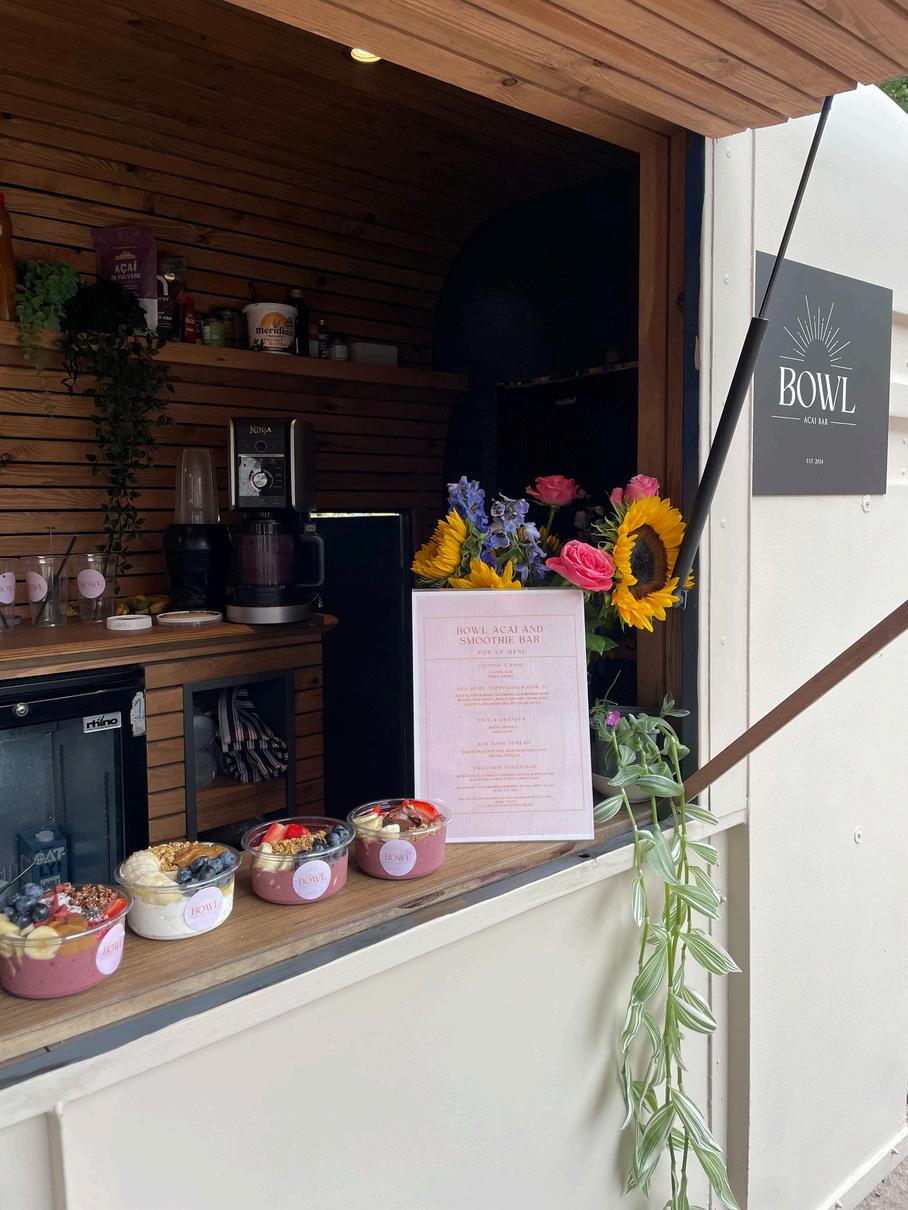

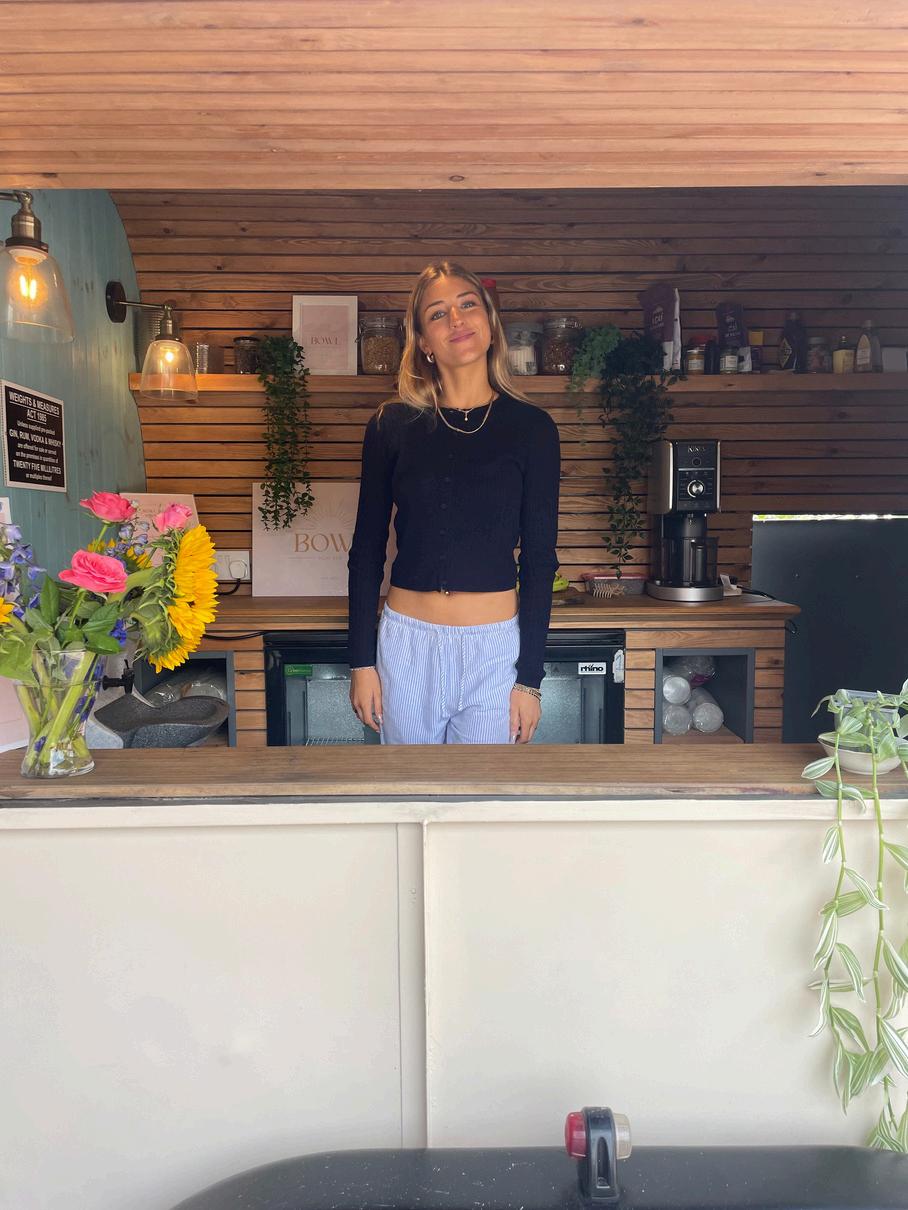
“Born from a deep love of health and wellness, Bowl is a small business serving vibrant superfood and açaí bowls from a beautifully converted horsebox We’re located at a peaceful campsite just outside a yoga studio in West Wales - an ideal setting to nourish both body and soul
The idea for Bowl came to life during my first year studying Law and Business at the University of Exeter. Inspired by the wellness culture of Cornwall and Bali and driven by a desire to create a healthier food option in Pembrokeshire, I combined my passion with the practical knowledge gained through the Exeter Student Startup programme on the Penryn campus.
At Bowl, everything we serve is thoughtfully crafted Our simple mission to promote vitality, balance, and the art of healthy living in a way that is both accessible and delicious.”
Serves 1
Ingredients:
½ cup rolled oats
½ cup coconut milk
2 tbsp coconut yogurt
1 tsp chia seeds
1 tbsp desiccated coconut
1 tsp fresh lime juice (about ¼ of a lime)
½ tsp maple syrup or honey (optional, depending on sweetness preference)
For the topping (add in the morning):
¼ cup fresh mango, diced 1–2 tsp lime zest
1 tbsp coconut yogurt (a dollop on top)
½ passionfruit
1 tbsp toasted coconut flakes
Instructions:
Mix the base (night before):
In a jar or small container, combine the rolled oats, coconut milk, coconut yogurt, chia seeds, desiccated coconut, lime juice, and sweetener Stir well to combine
Chill overnight:
Cover and refrigerate overnight (or at least 4–6 hours) to allow the oats to soften and flavors to meld
Add toppings (next morning):
Give the oats a quick stir. Top with diced mango, lime zest, a dollop of coconut yogurt, passionfruit and pulp, and coconut flakes.
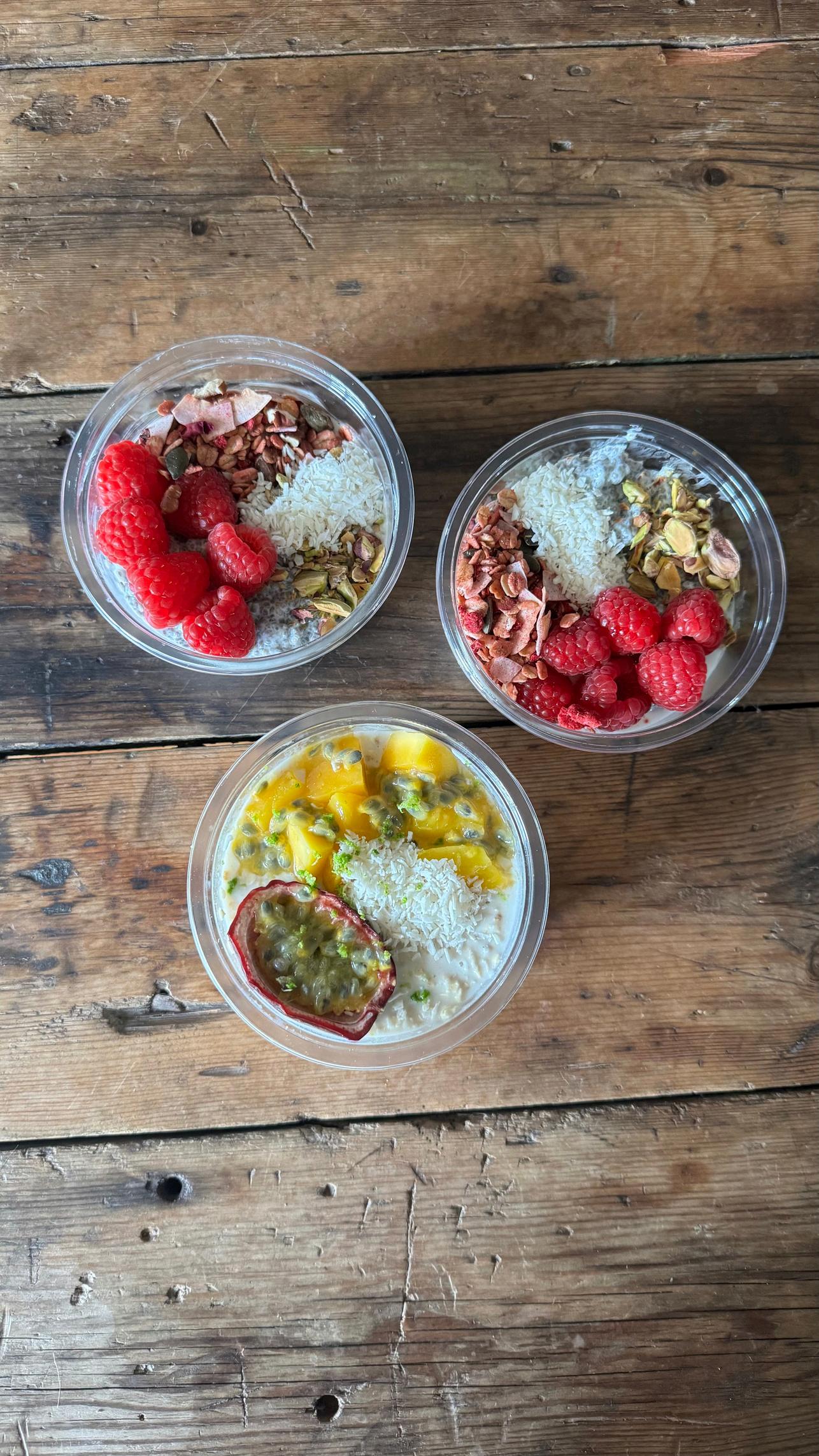
For a colder, more refreshing version, add a few chunks of frozen mango before chilling
You can prep multiple jars ahead and store them for up to 3 days in the fridge.
To toast coconut flakes, drytoast in a pan over medium heat for 2–3 minutes until golden.
I love this simple recipe as you can always add extras - my personal favourites are goji berries and almond butter.

Gone are the days when your games shelf just had monopoly and a pack of cards... the world of board games has gone boom in recent years, with the rise of interactive games, strategy games, party games, and all with creative and engaging storylines You can now find a board game café in most cities, or join a local club.
So why is the board game industry booming? Some say it provides a much-needed break from a screen; it also provides a social activity where we can connect with others
There’s never been a better time to launch new board games – let's take a look at some of the innovative and unique games that have been created by our student and alumni community and beyond.
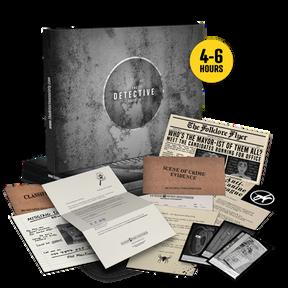
In 2020, Dan Wiseman combined his entrepreneurial know-how with his love of games to launch The Detective Society, an immersive, escape-room style board game company, with his two friends Tristan Rogers and Joe Mills From a successful Kickstarter campaign, they raised an amazing £75,000 over 45 days to fund the early development of the business
Inspired by his love for games and the restrictions of the pandemic, Dan and his cofounders aimed to bring the escape room experience into people’s homes worldwide
Dan went on Dragons' Den in 2022 to pitch his idea, and secured a joint deal with Deborah Meaden and Sara Davies
Born from a passion for storytelling and a desire to create meaningful, inclusive play, CircleTales is a collaborative board game that invites players to use their imagination to cocreate magical tales

Created by University of Exeter alumni Annie Murdock and her partner Herman Castaneda, CircleTales features beautifully crafted bamboo boards, wooden tokens, and “Moon Cards” that prompt players with reflective questions and story elements.
Circle Tales was selected by UNESCO Exeter City of Literature as one of 10 finalists that represented a Devon-based project connecting literature and the creative industries while reflecting the city's cultural diversity
The Belonging Game was pioneered by a team of academics and stud the University of Exeter and was launched earlier this year Inspired by feedback from their own students, that it is sometimes difficult to connect and make friends when starting at university, The Belonging Game was created to help students to get to know one another without the pressure of having to craft the entire conversation

The questions resonate with real student experiences and are inclusive of all cultures and backgrounds.
Dr Dominic Wiredu Boakye, Senior Lecturer at the University of Exeter and game cocreator said: “The Belonging Game offers a fun and structured way for colleagues, students, or complete strangers to connect more deeply and build meaningful relationships. Over the past year, we have co-developed and piloted the game with academics, charities, and students, and we have seen it spark genuine friendships time and again
Dr Musarrat Maisha Reza, another game co-creator said: “In a time where people, especially those from minoritised backgrounds are still grappling with belonging and visibility, this game offers a gentle, structured way to connect” Did you know?


The popular game Exploding Kittens held one of the most successful crowdfunding campaigns?
The Exploding Kittens Kickstarter campaign raised approximately $8 8 million from more than 200,000 backers, placing it among thetop 10 most successful board game Kickstartersof all time
If you are launching a board game or another physical product, a crowdfunding campaign (using a platform such as Kickstarter) can be a popular choice – to secure funding and a loyal community of customers who have backed your product, before launching it onto the market.
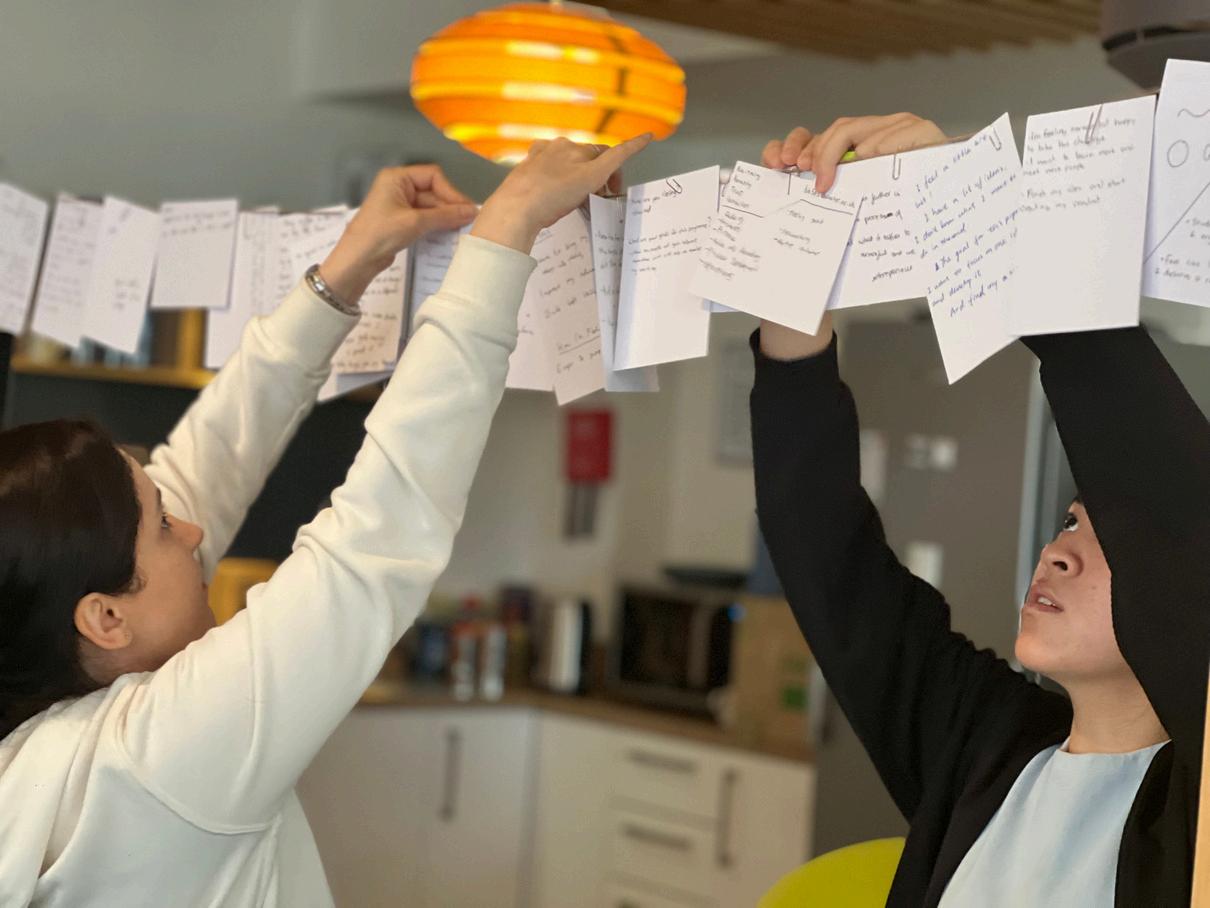
Whether you want to launch a new app, start a social enterprise, develop an innovative new product or creative project, the Student Startups team are here to support your entrepreneurial ambitions.
Perhaps you have the seed of an idea and don't know where to start? Perhaps you have a side-hustle that you’re looking to consolidate and grow? Perhaps you’re considering an entrepreneurial path post-graduation and want to get started now? Wherever you are on your journey and whatever your ambitions, the Student Startups team would love to work with you
To find out more, visit:
